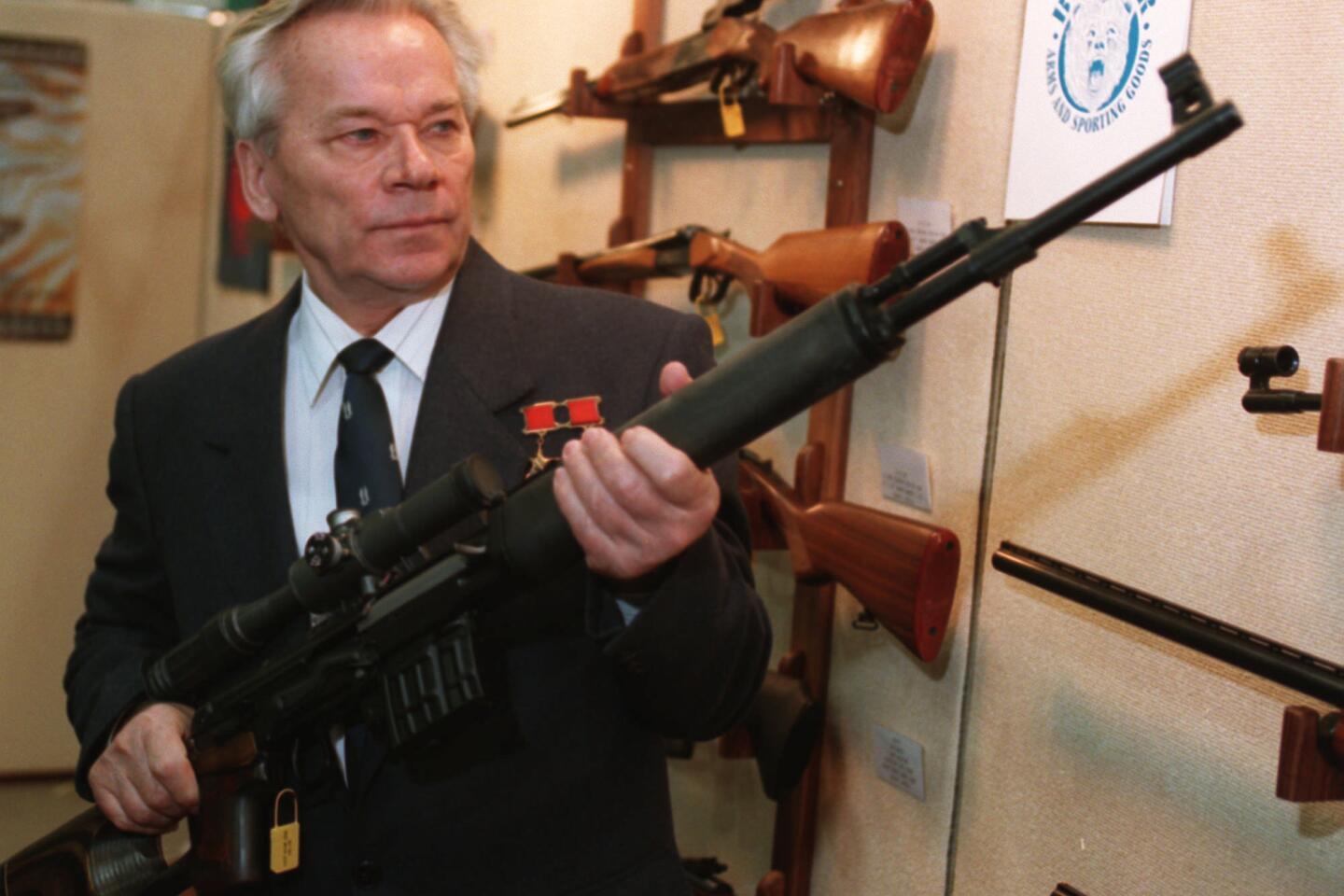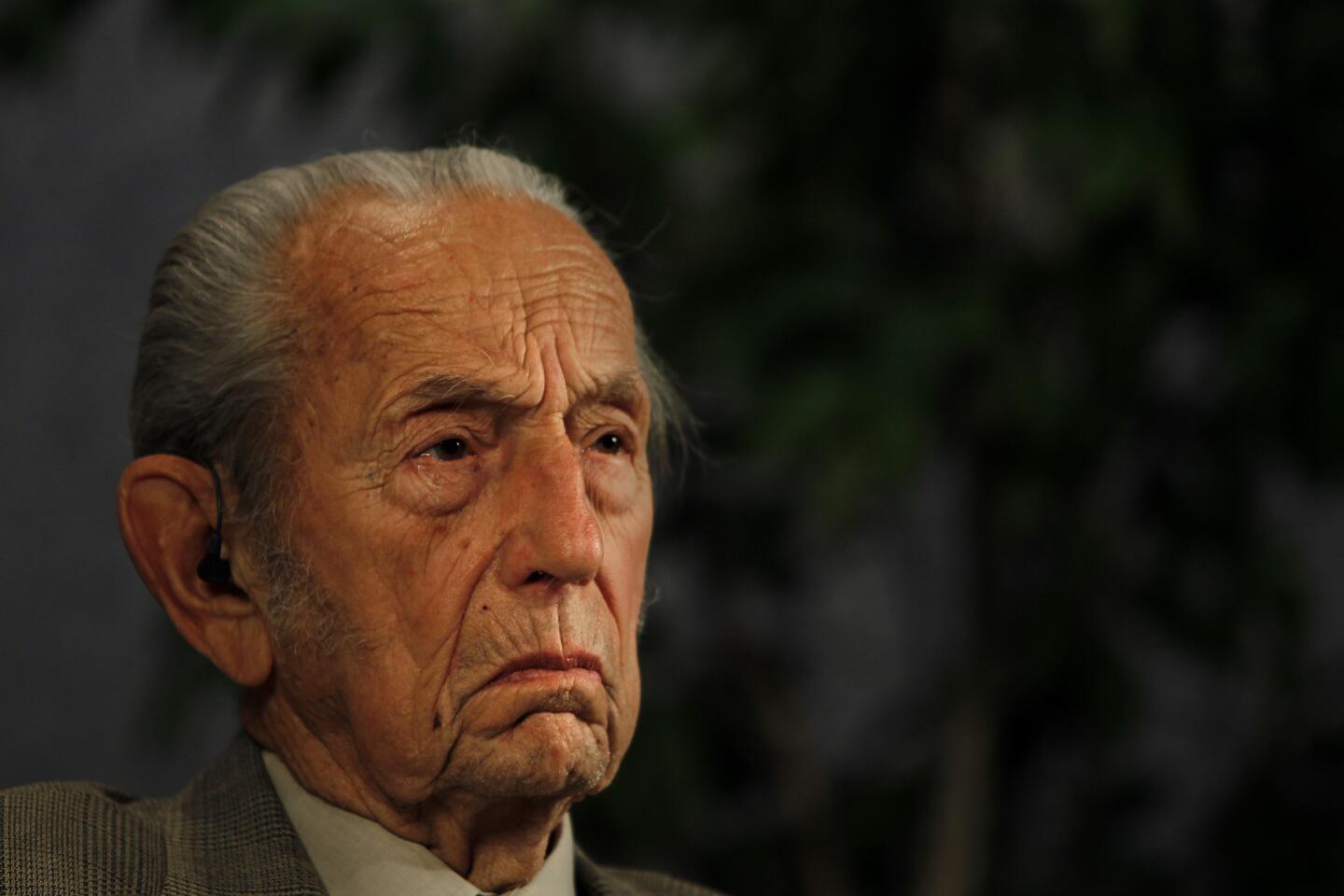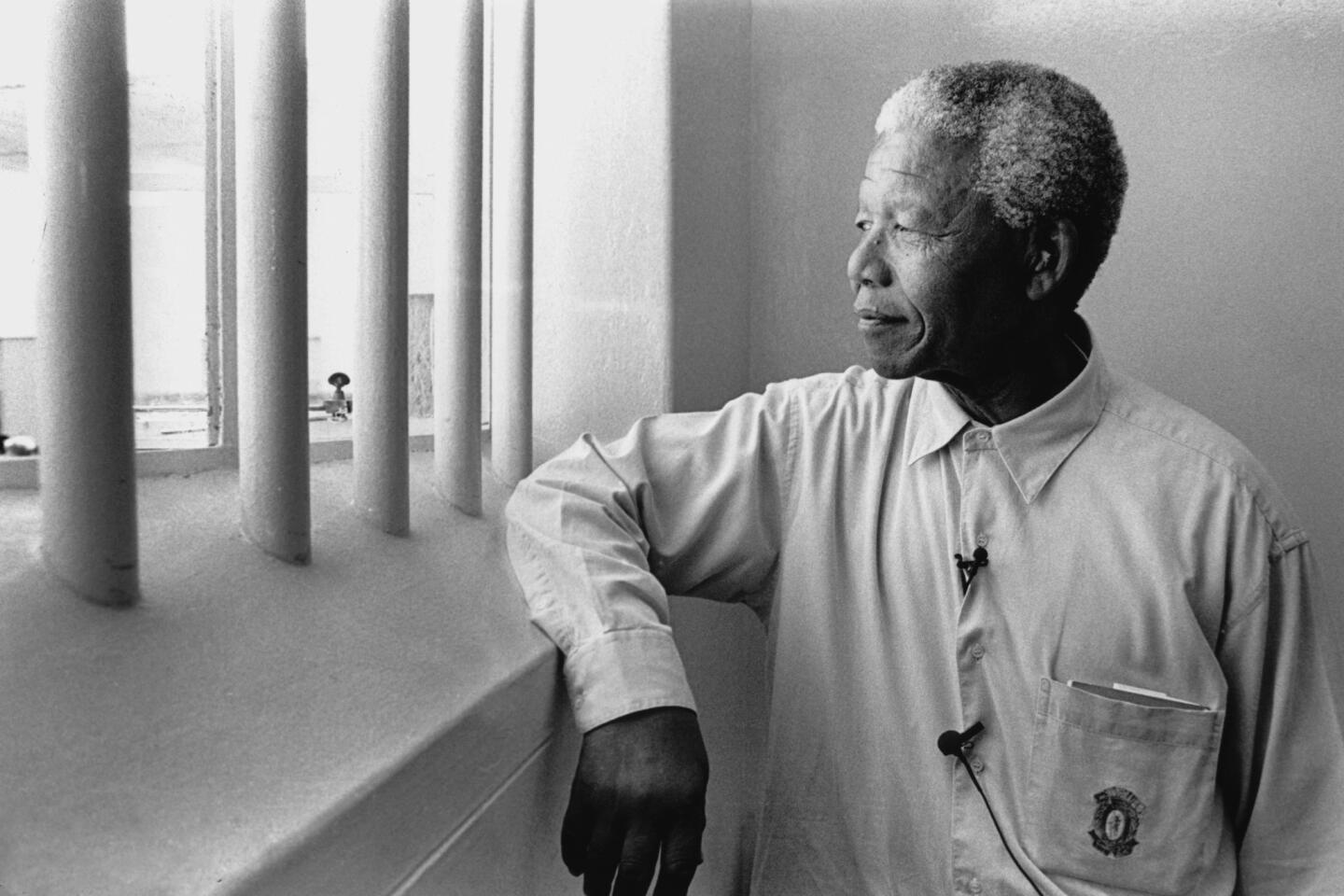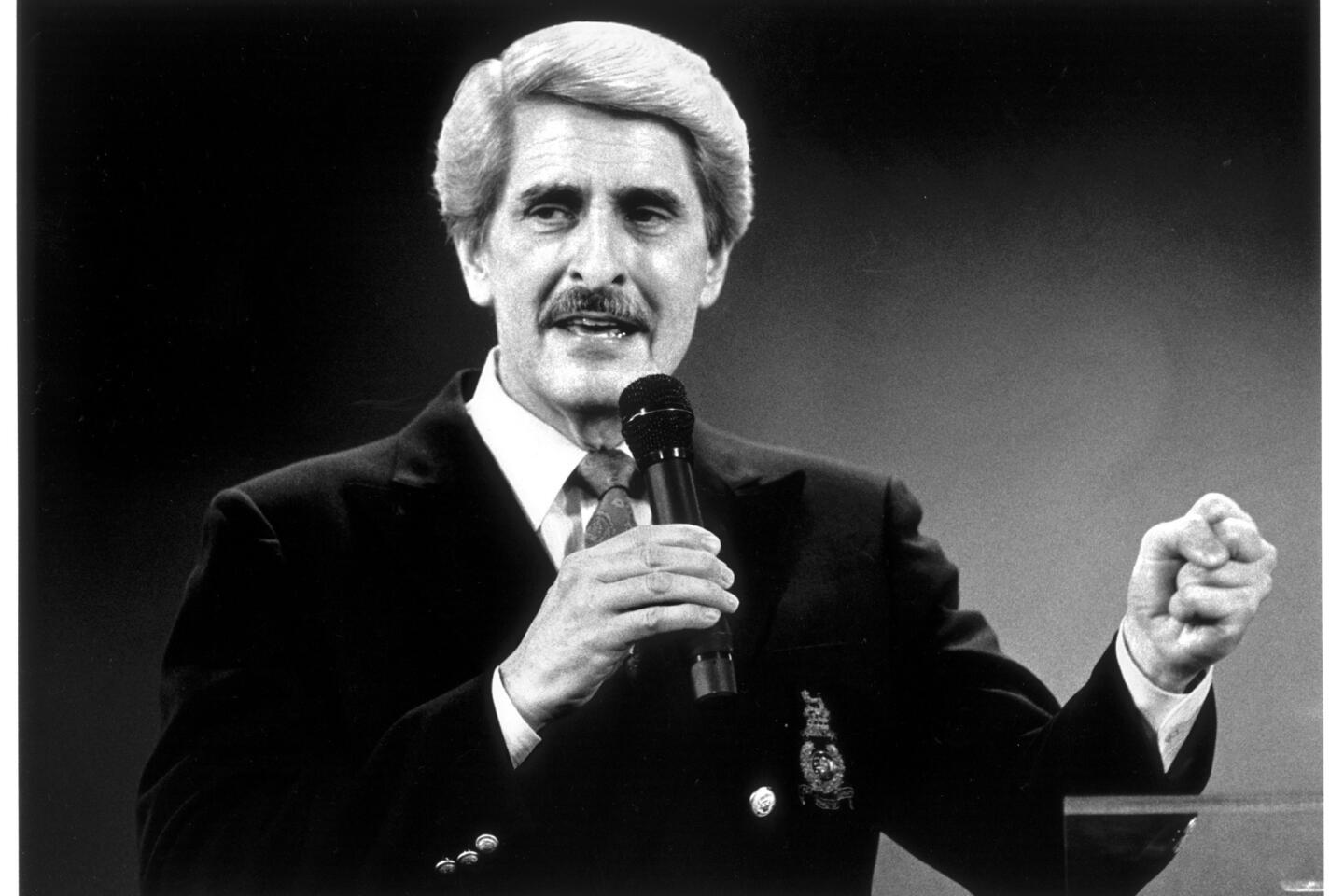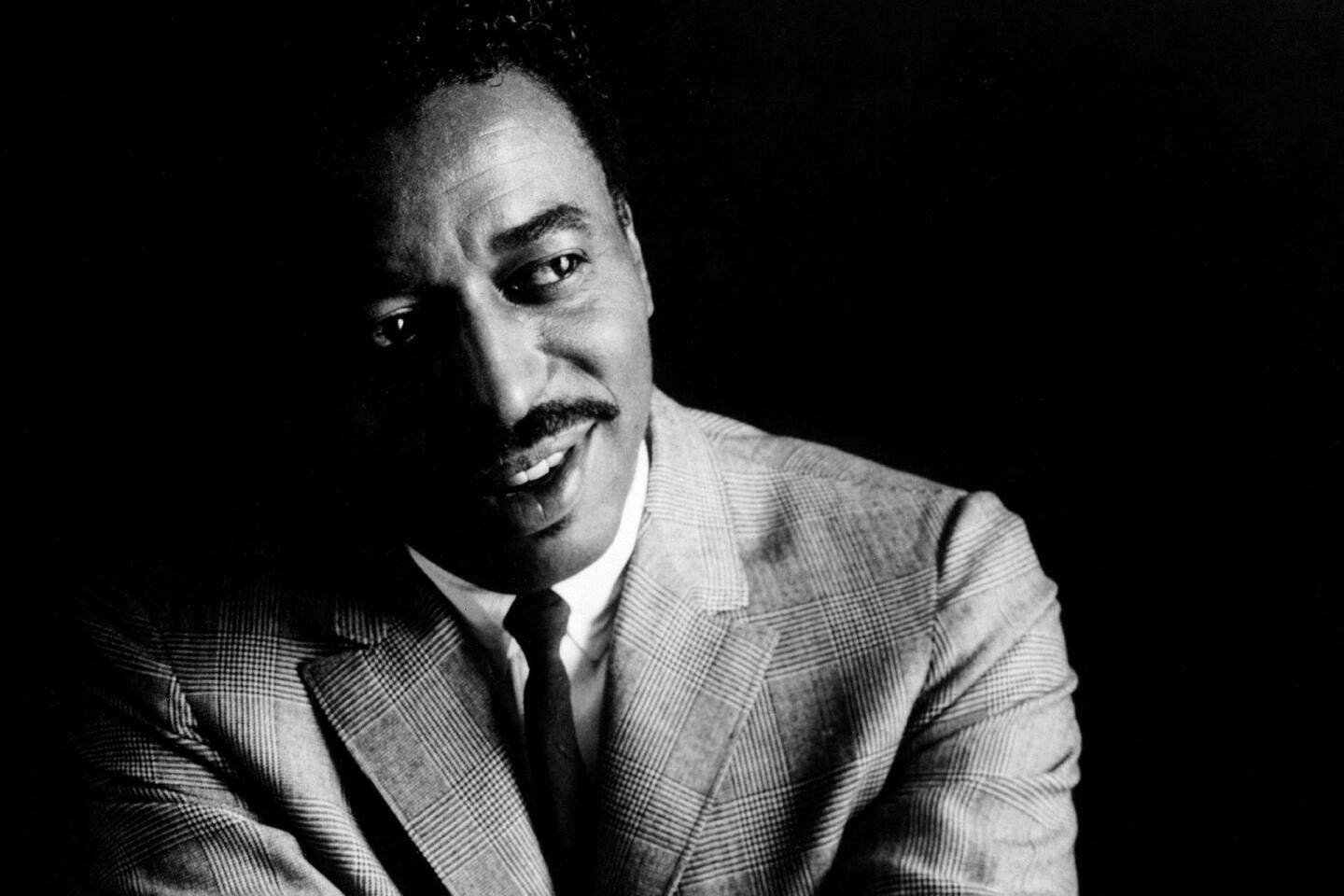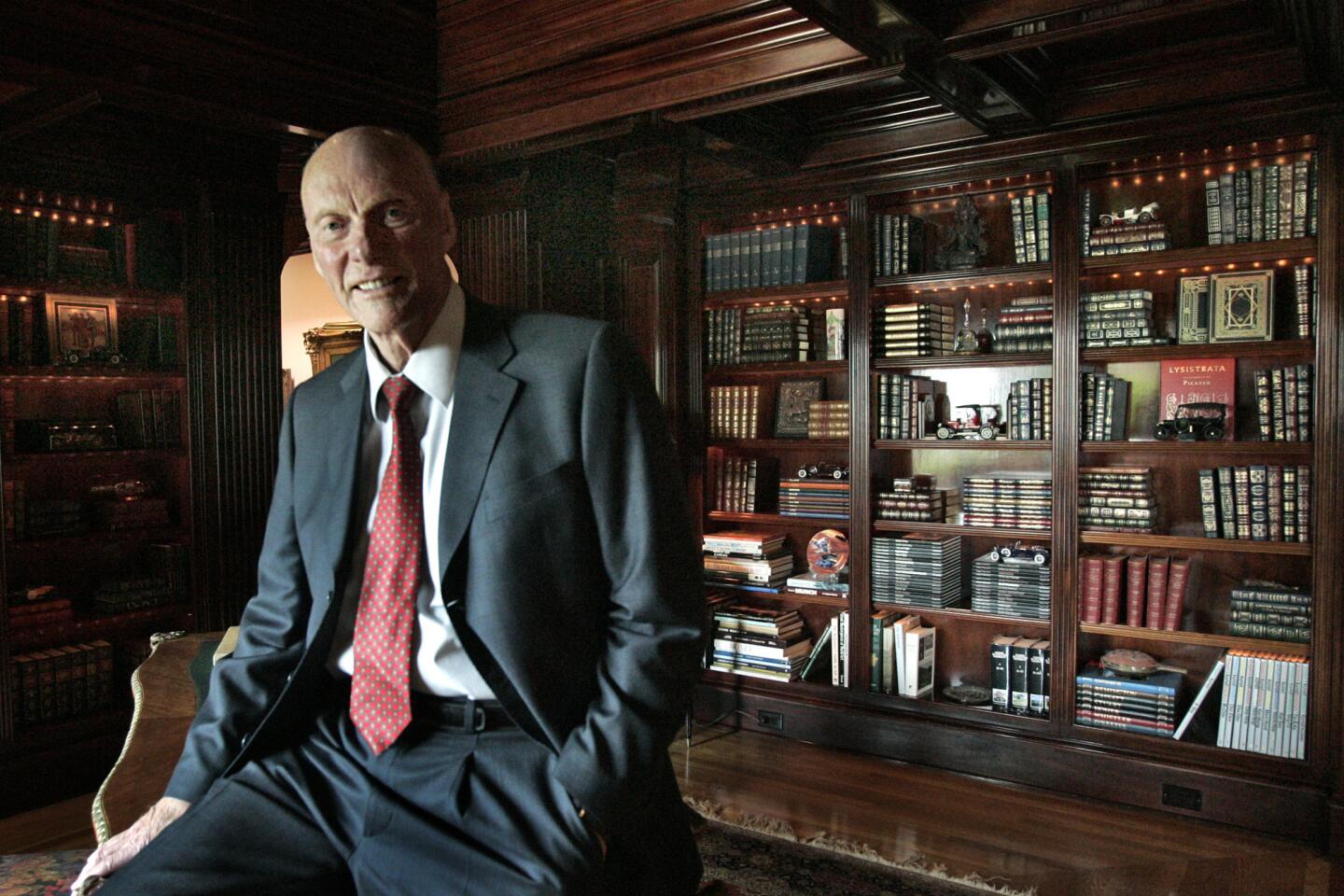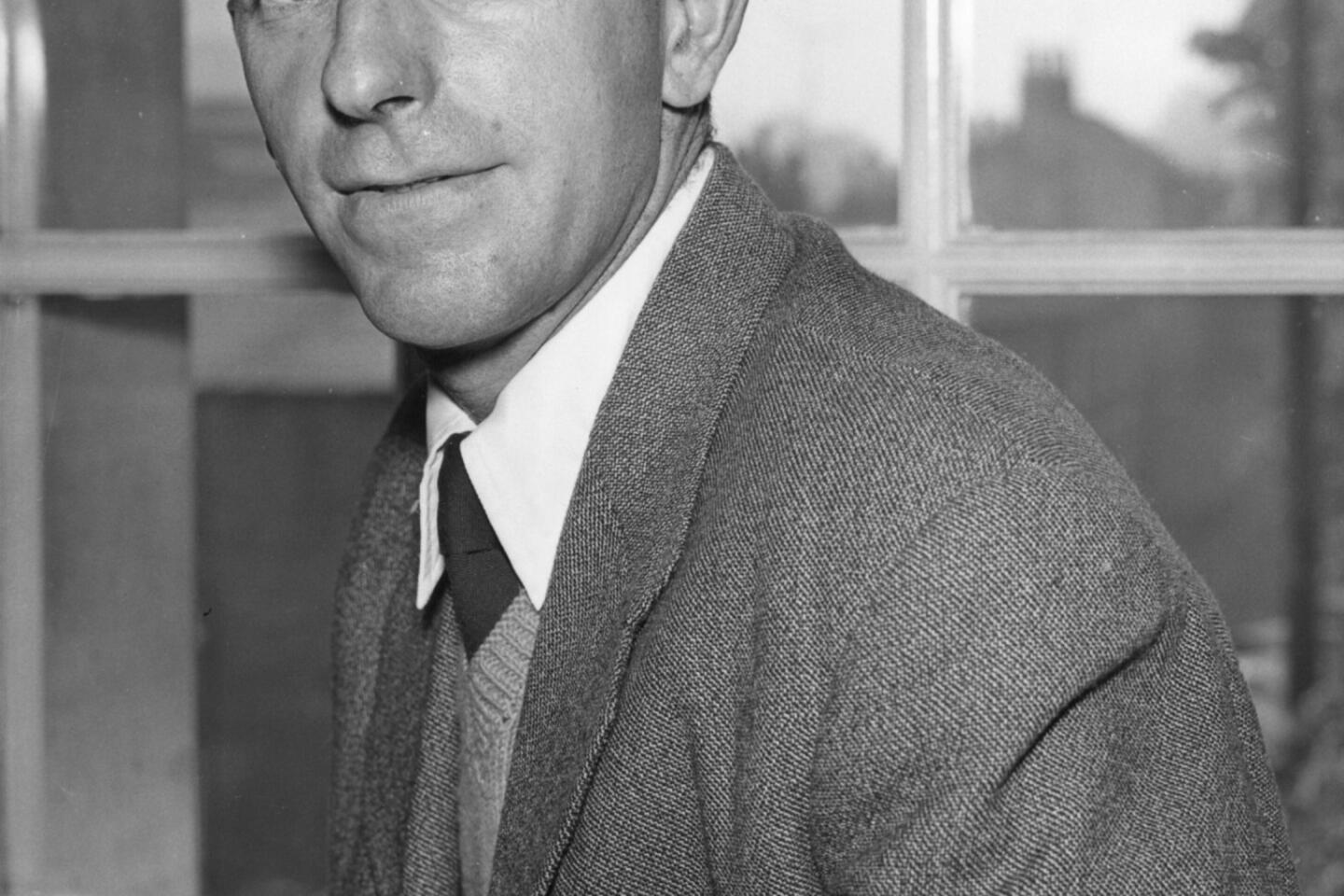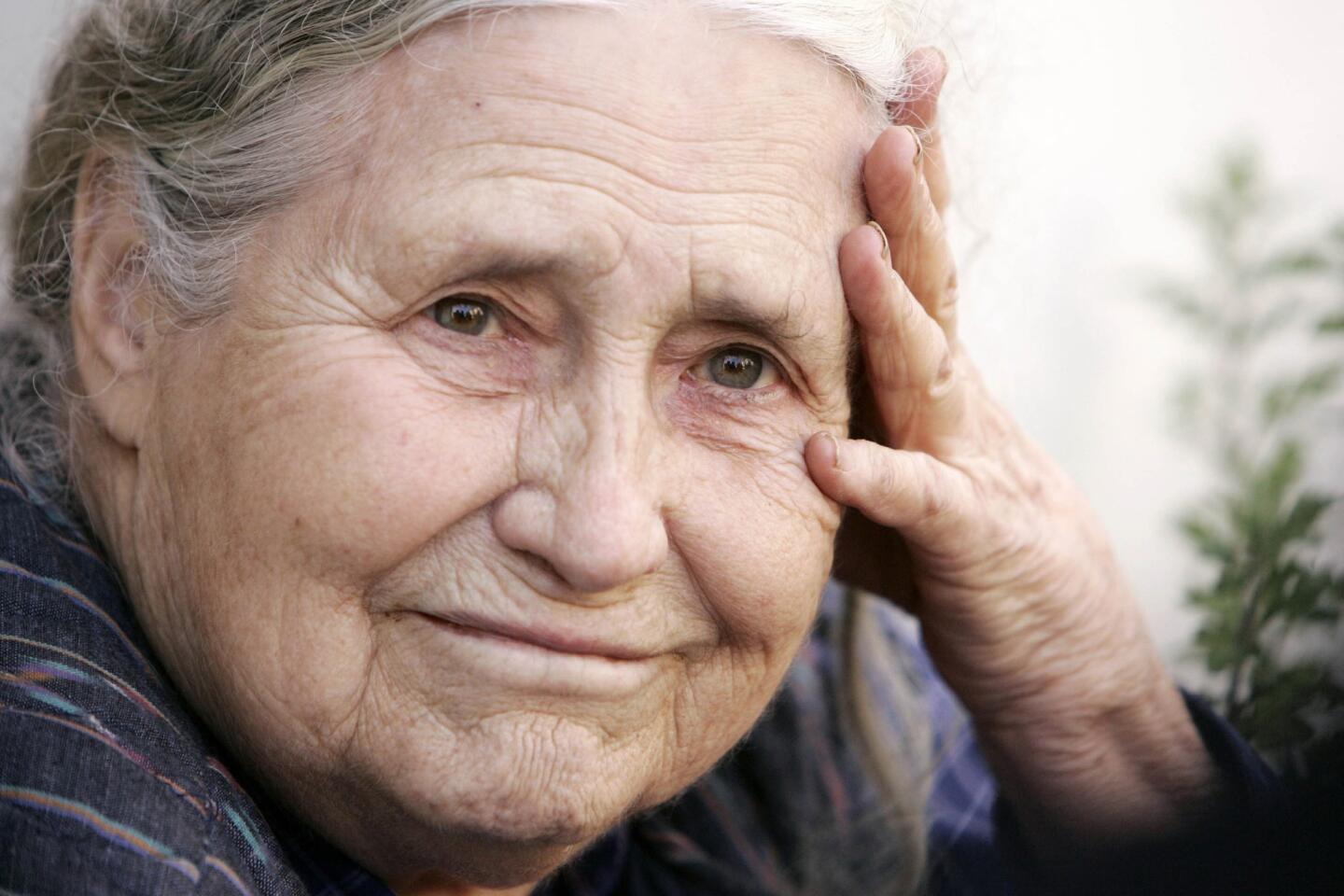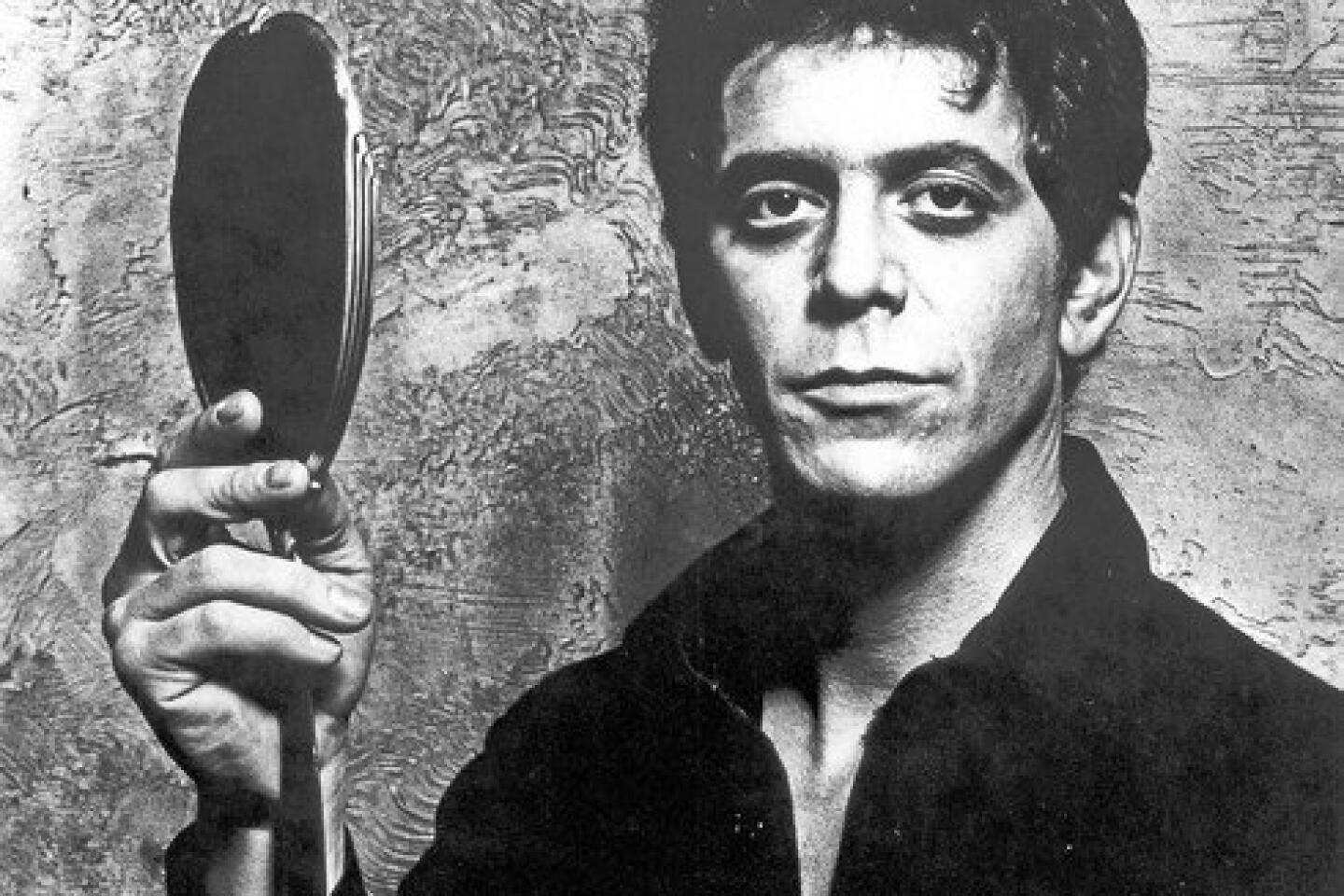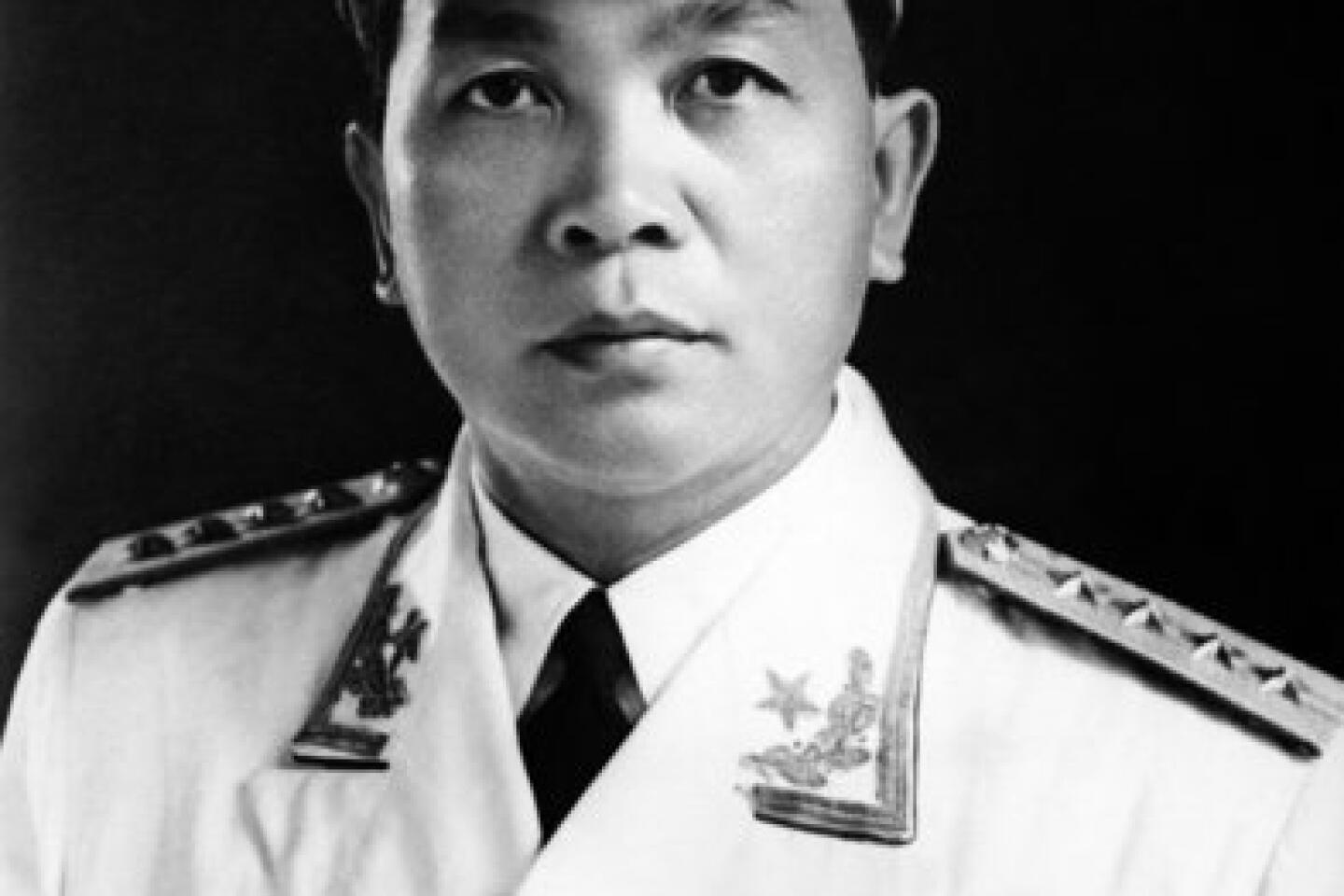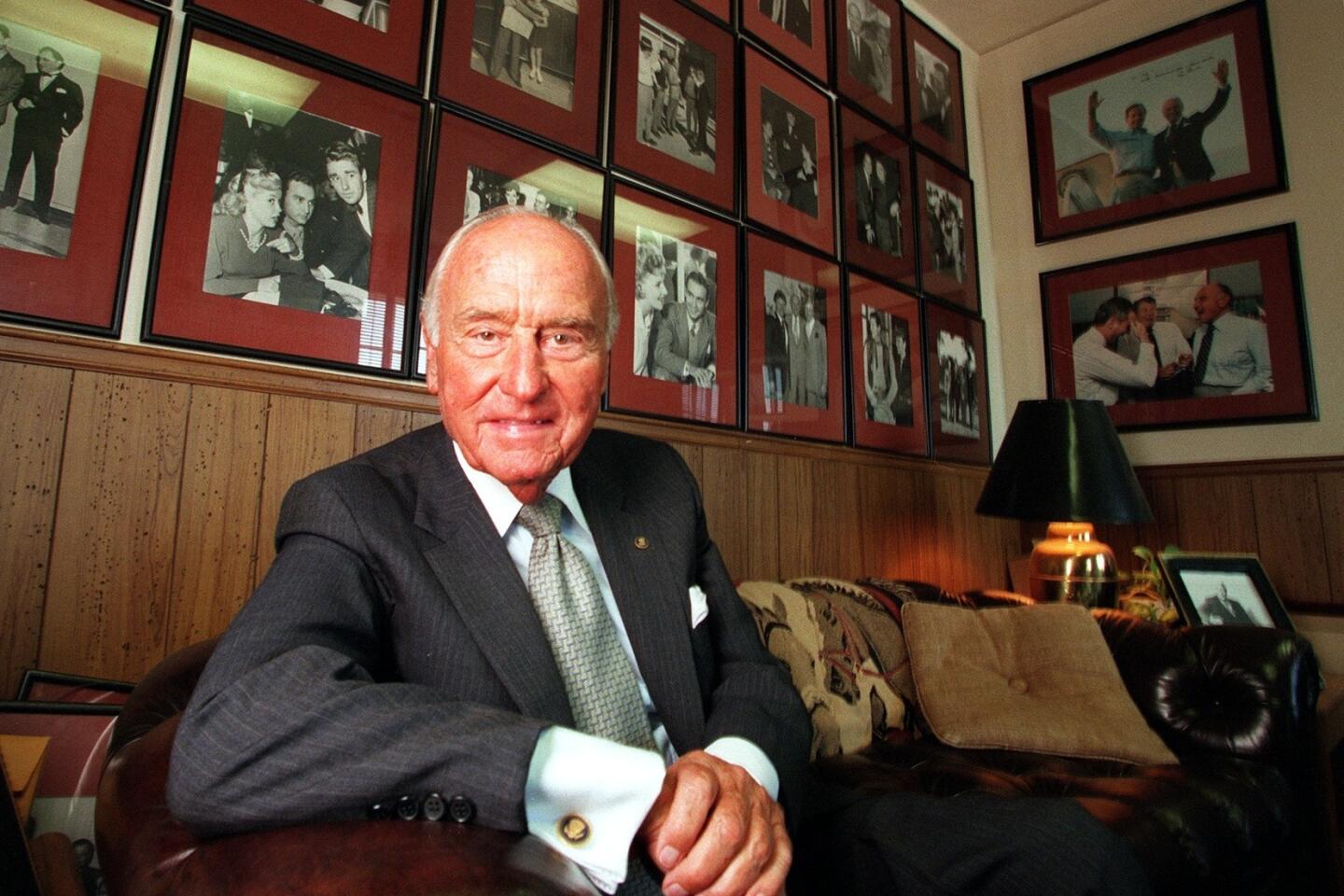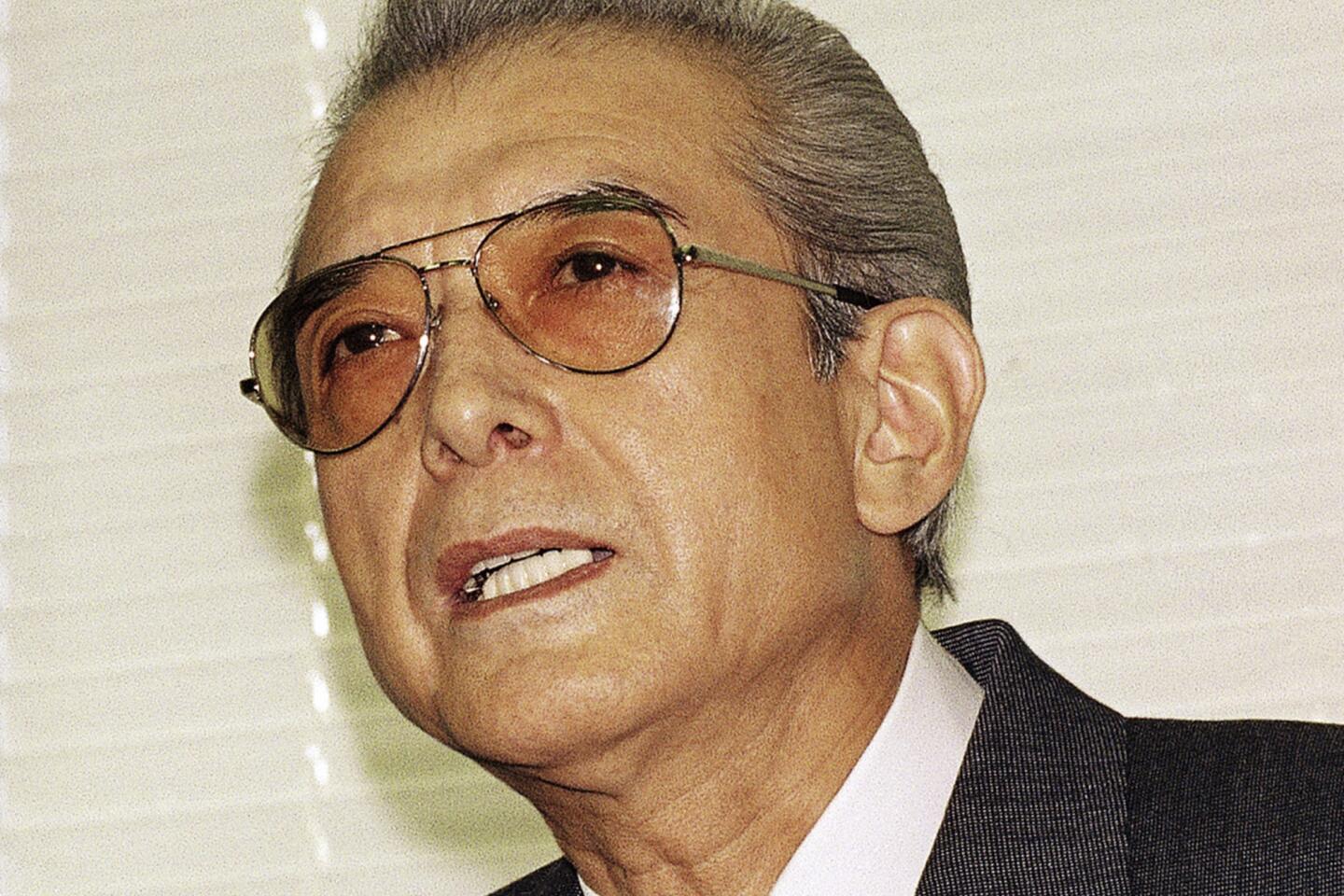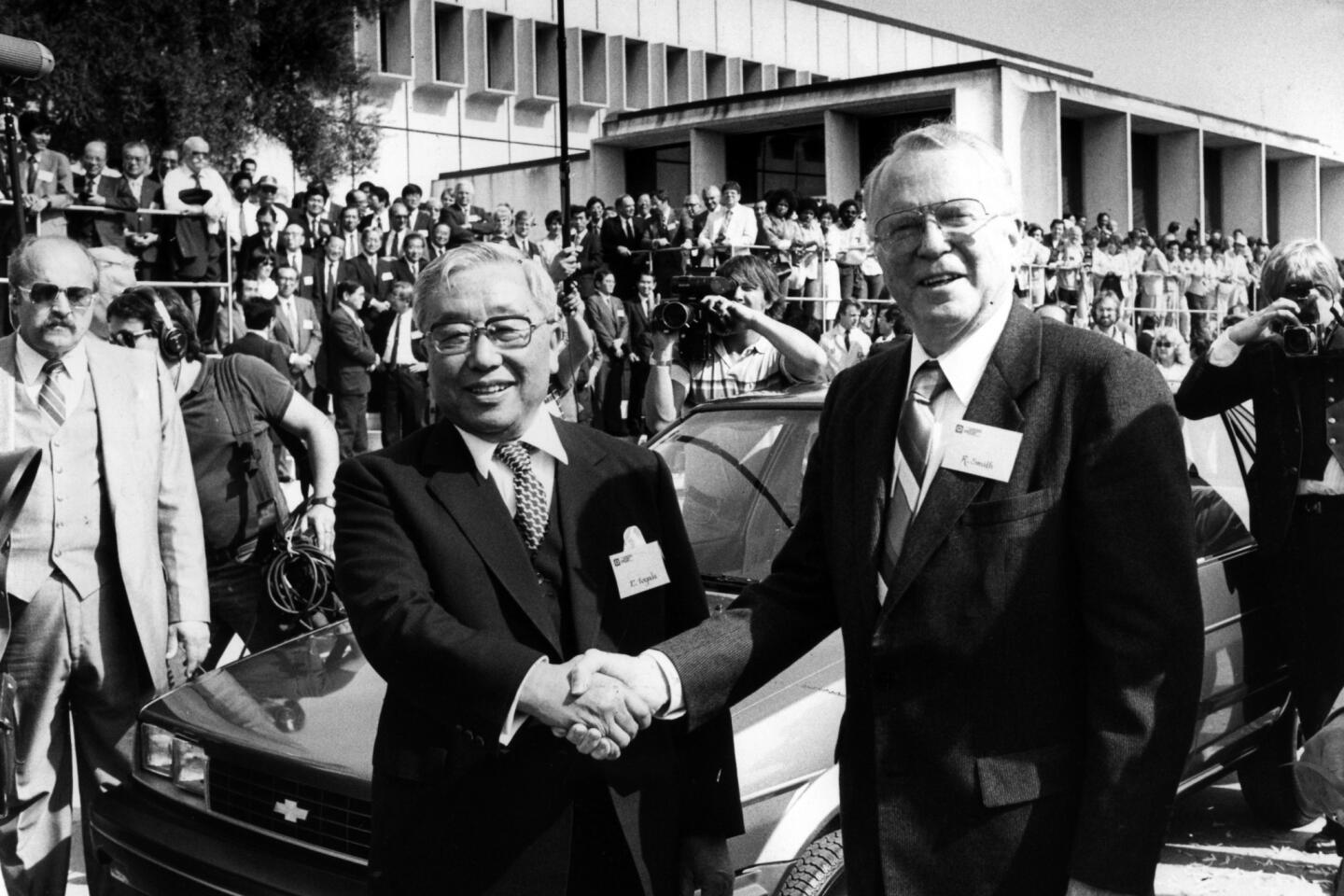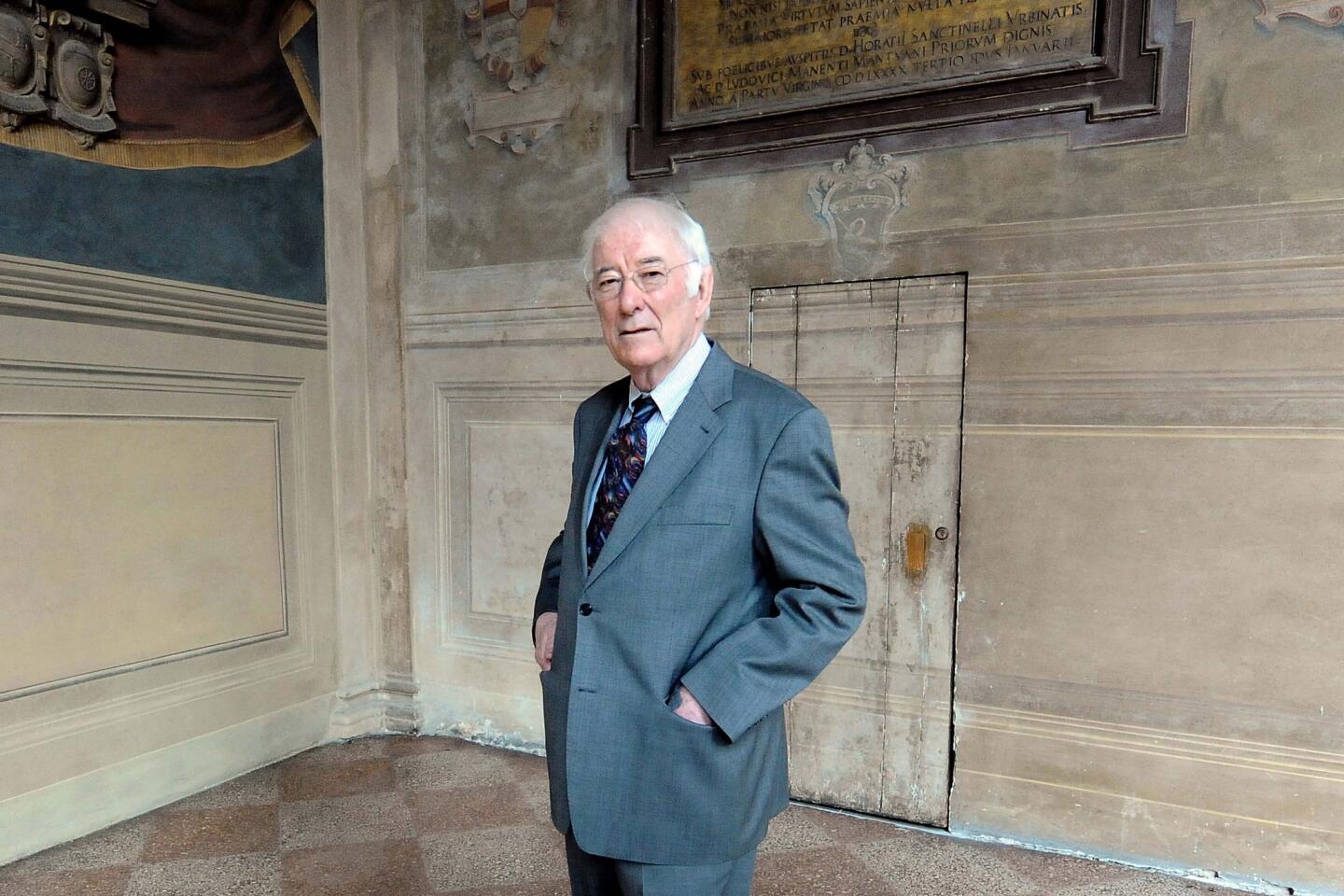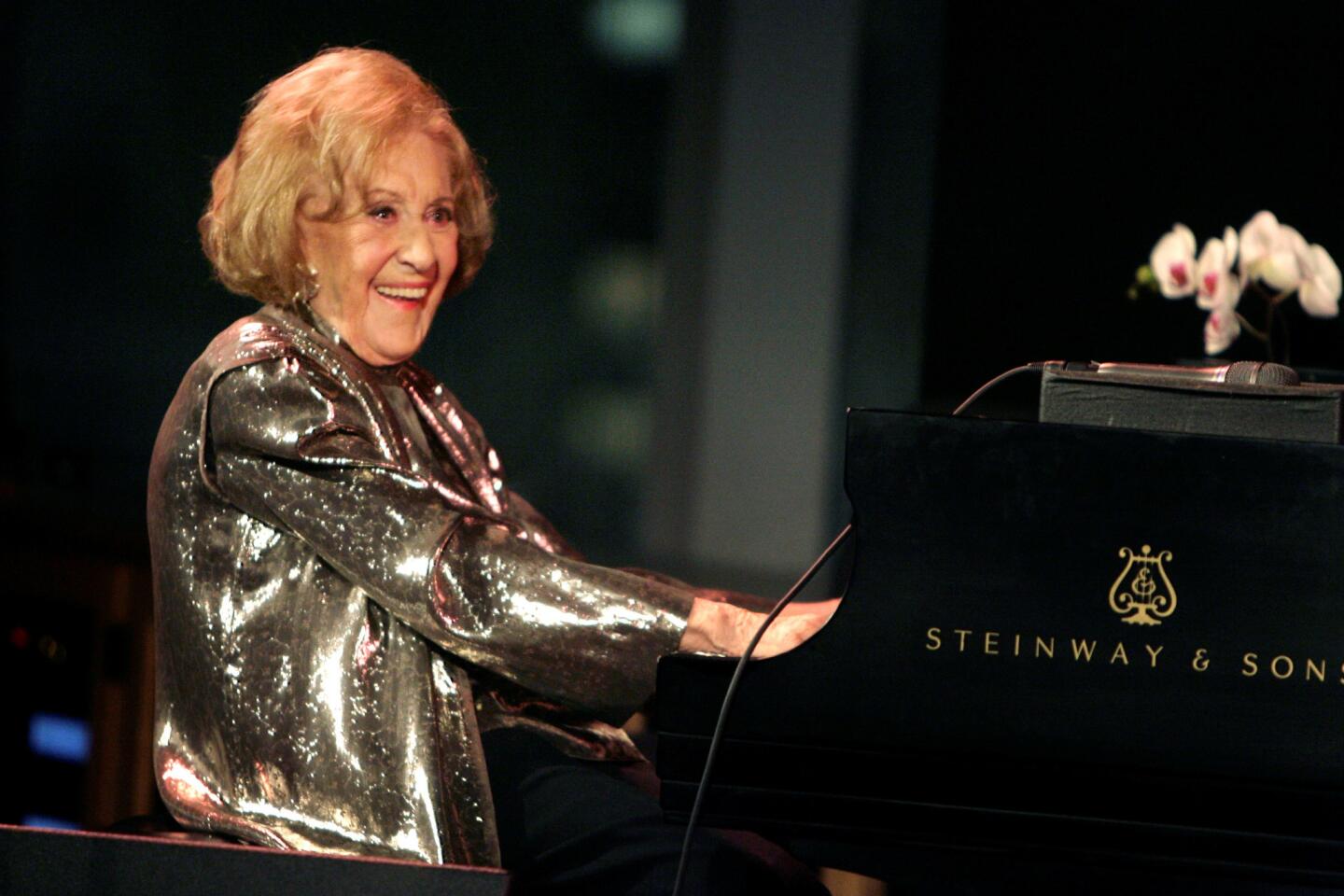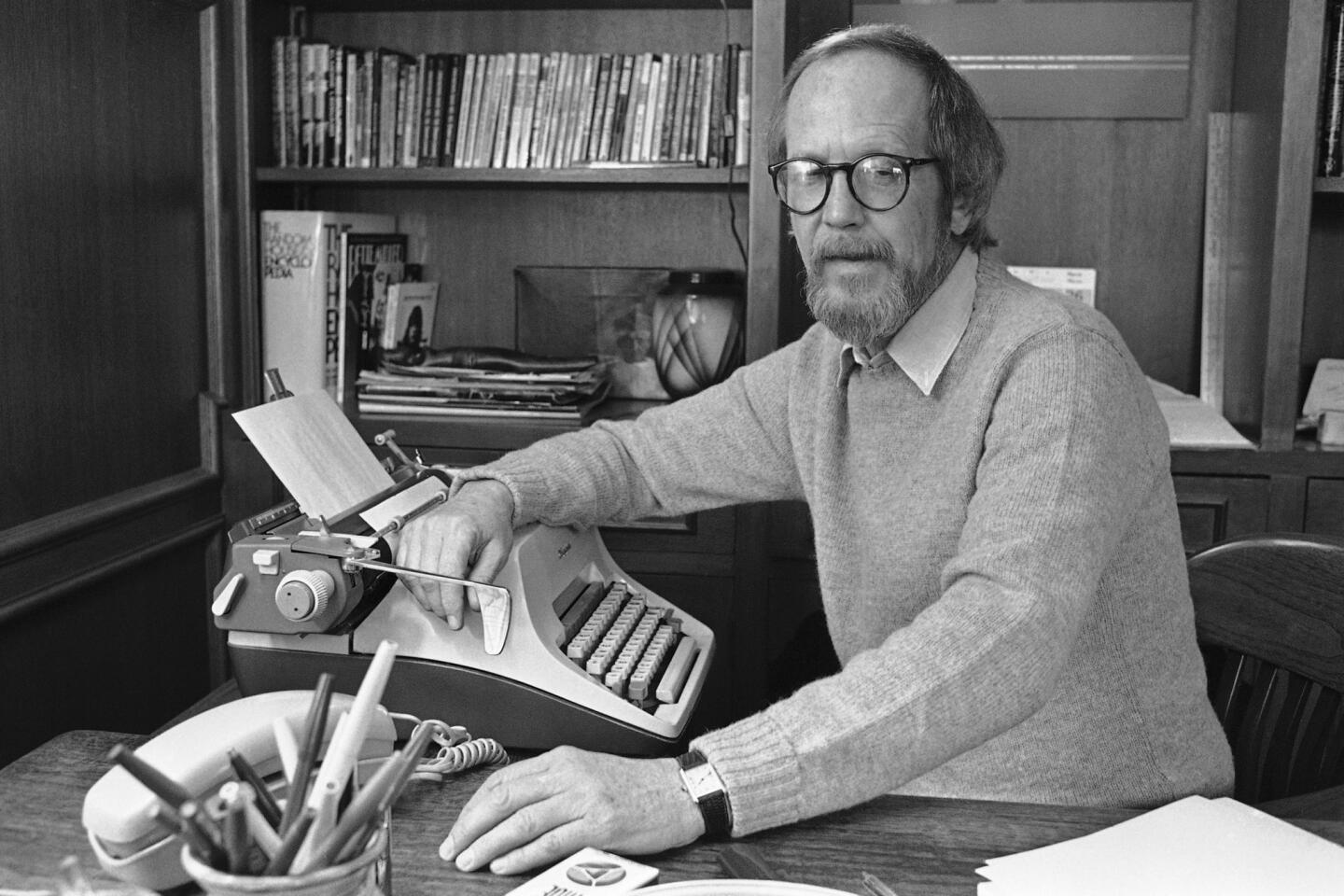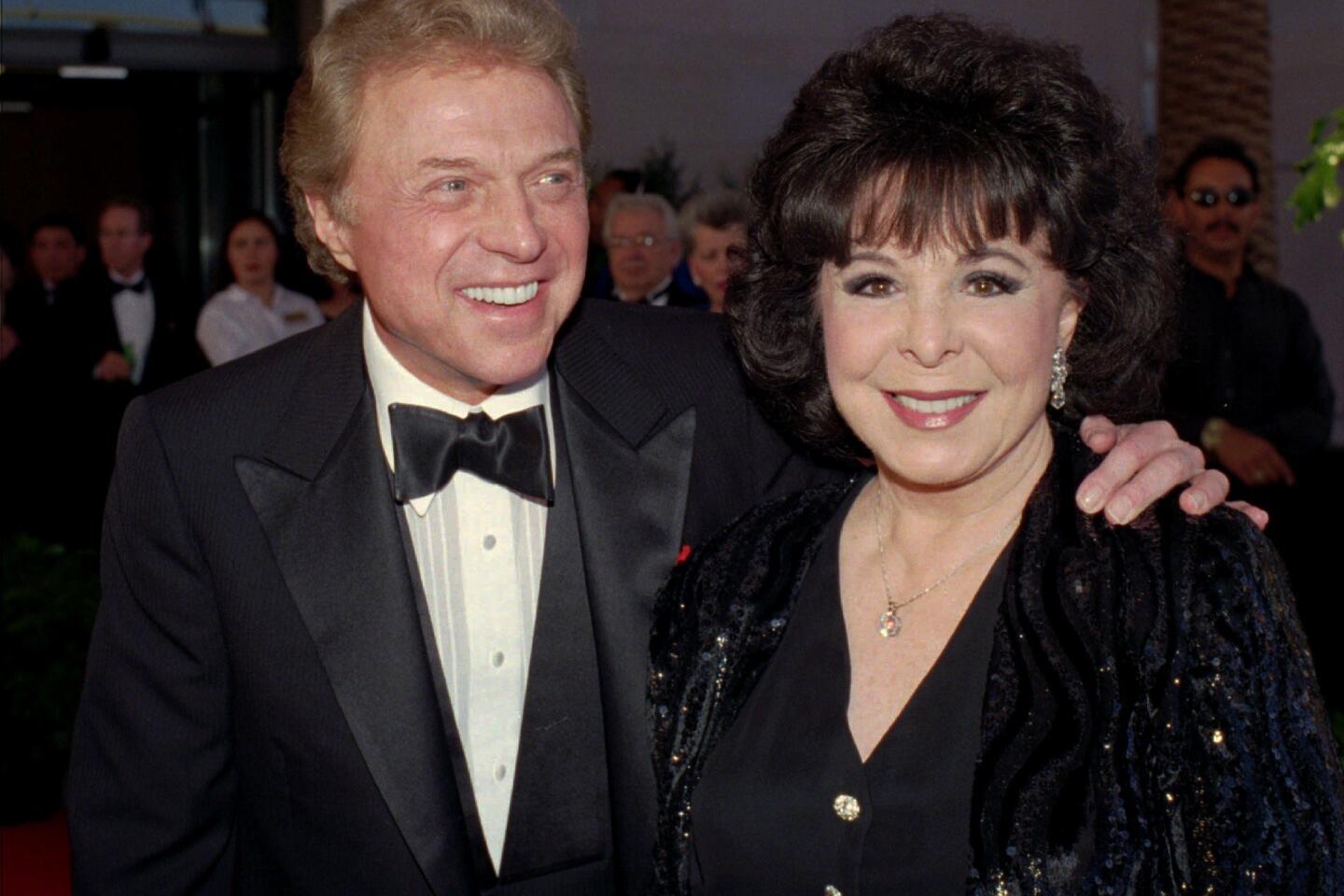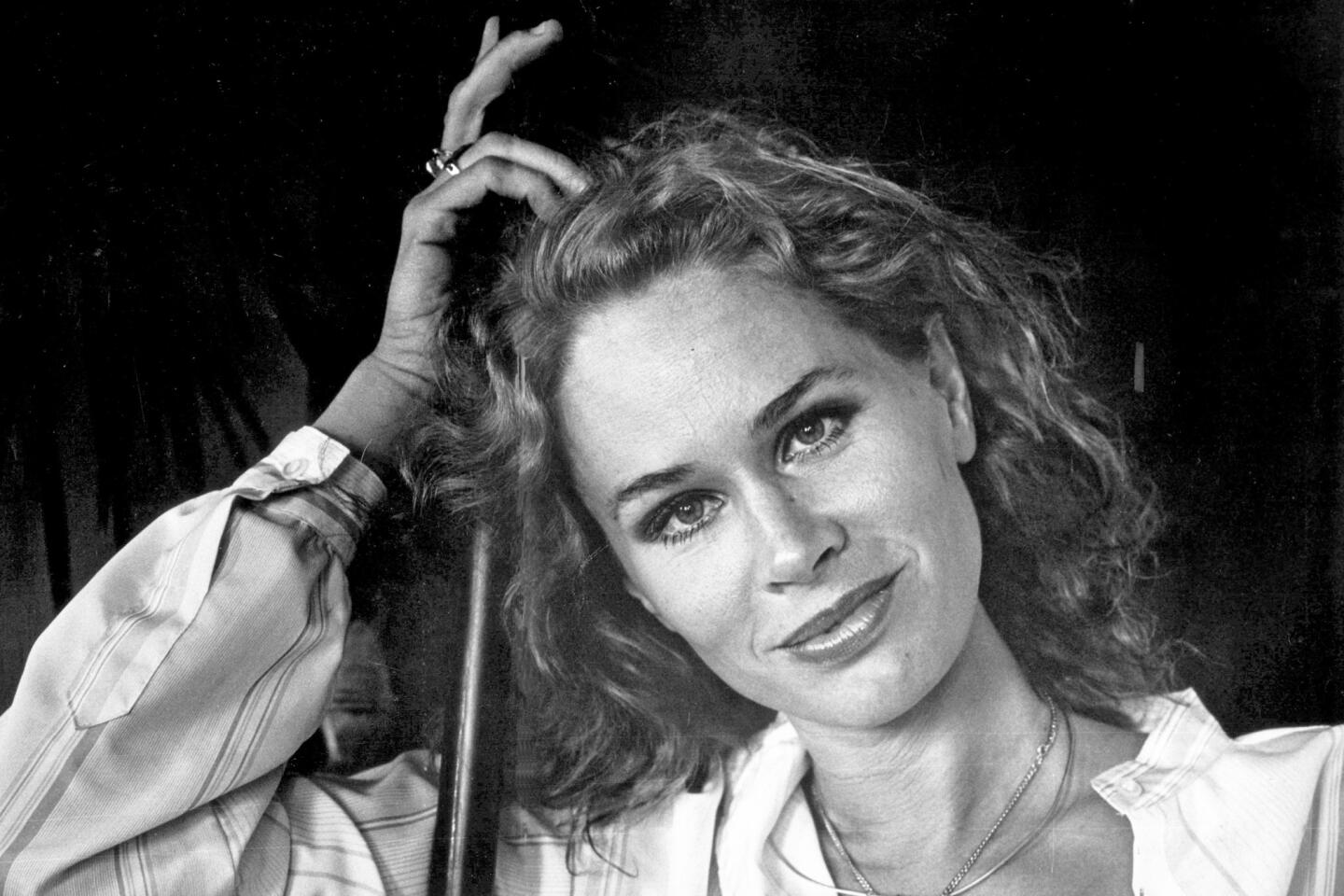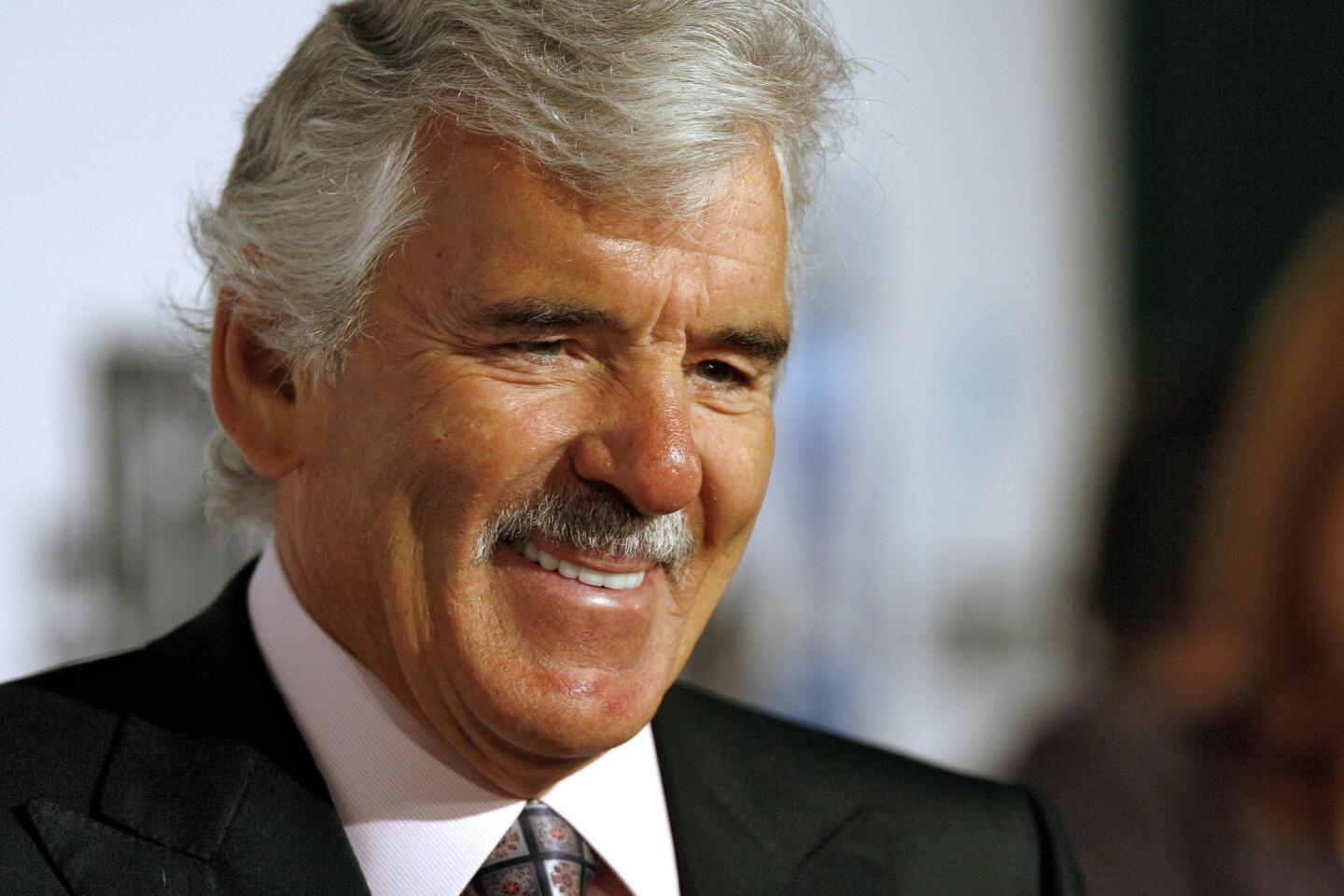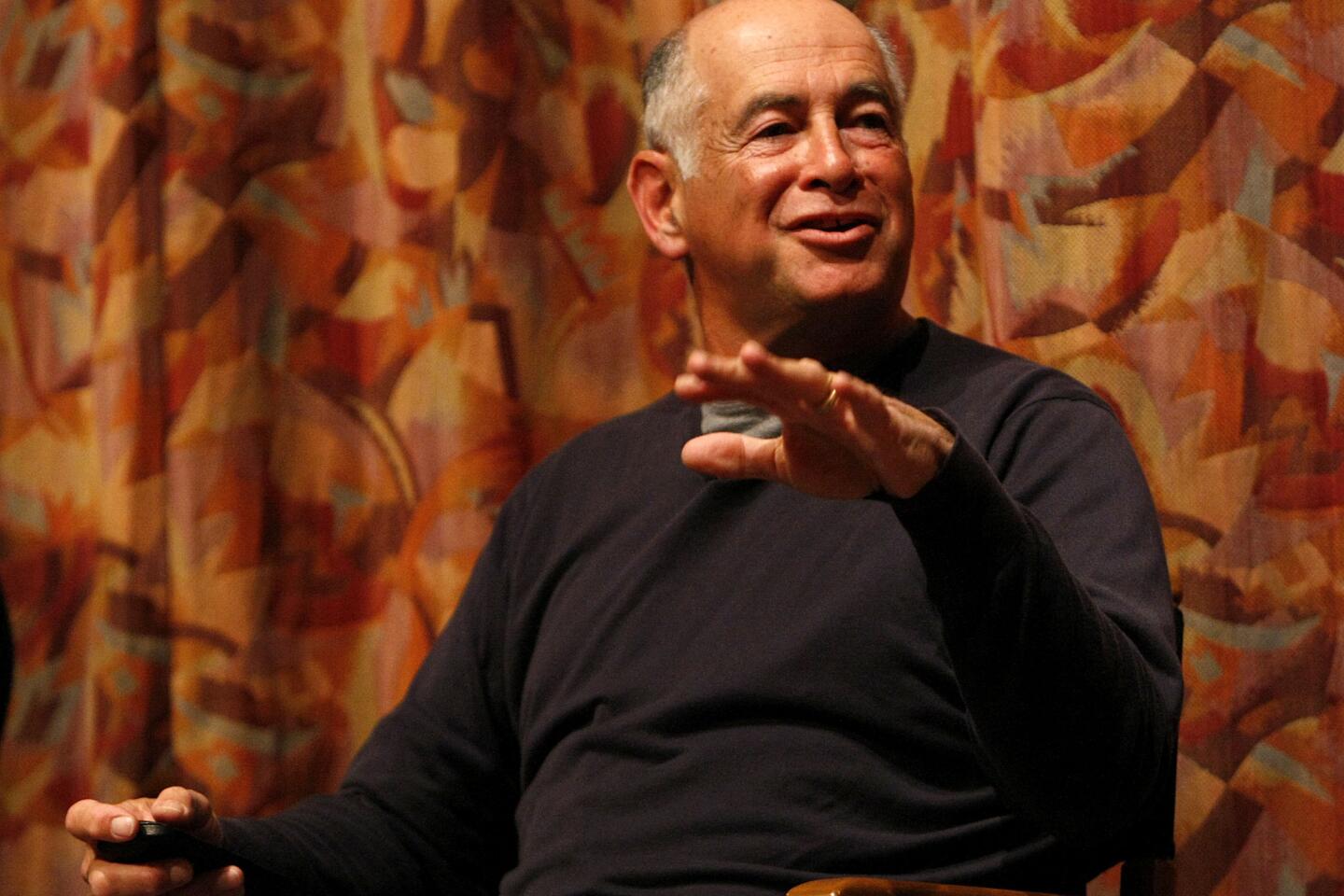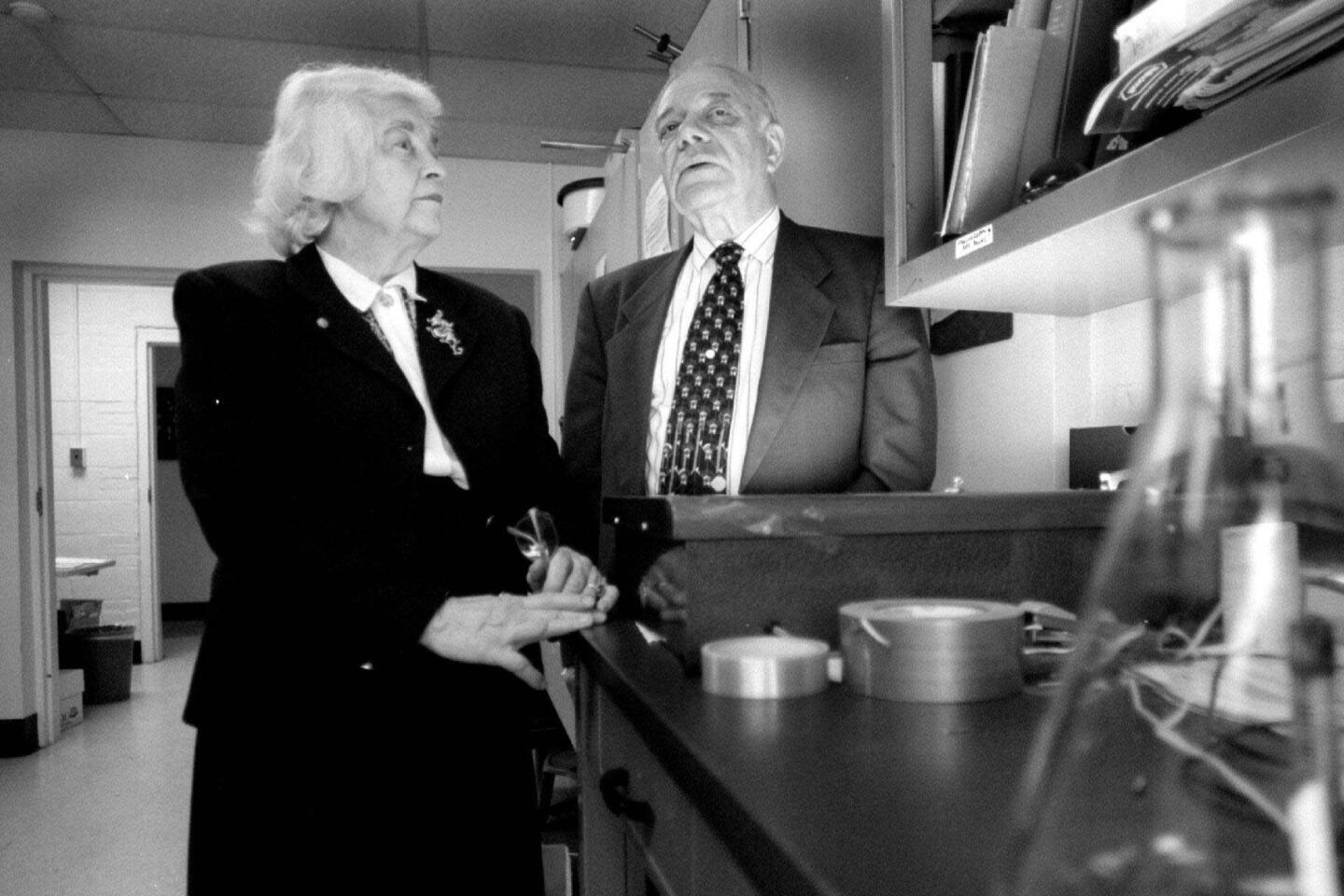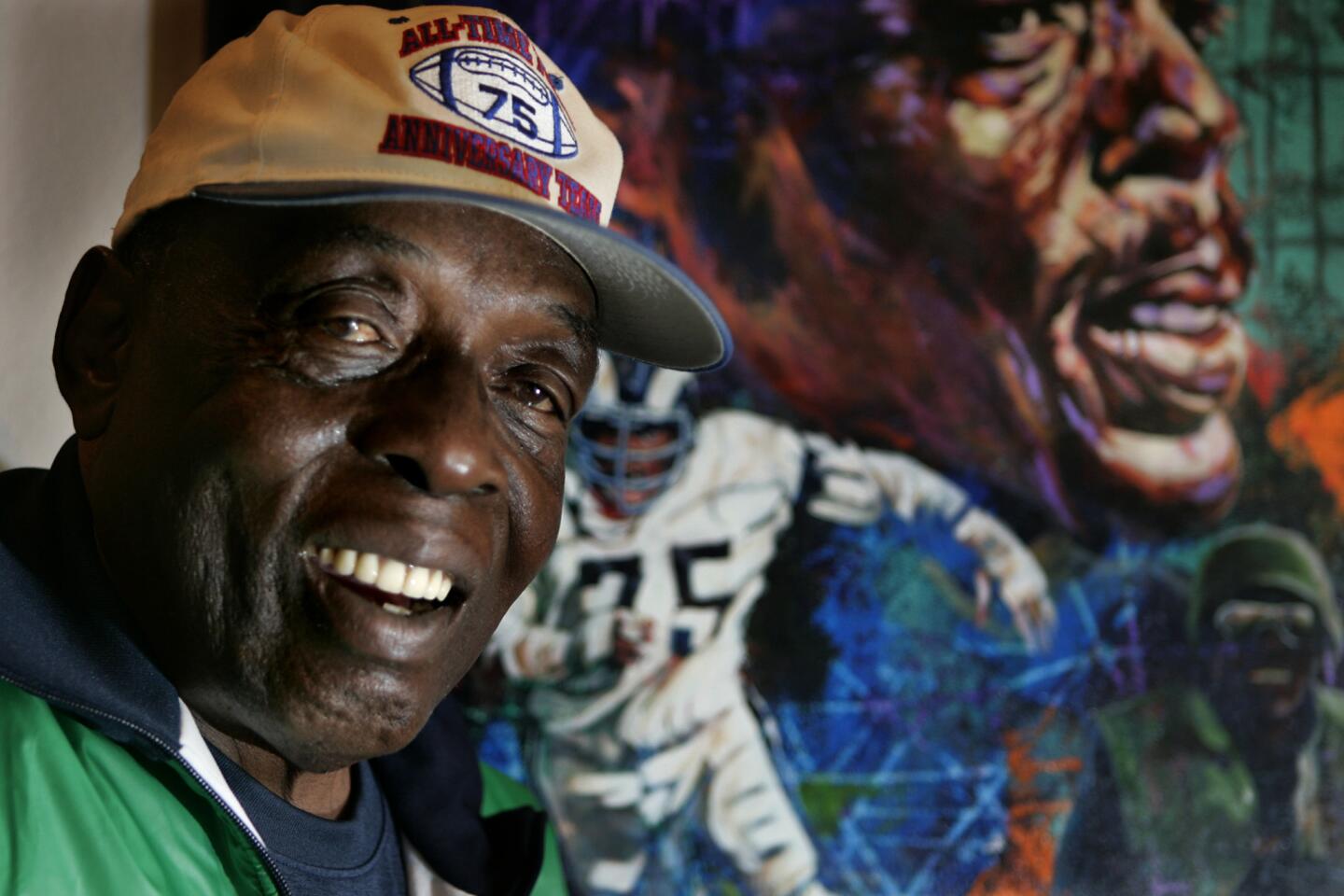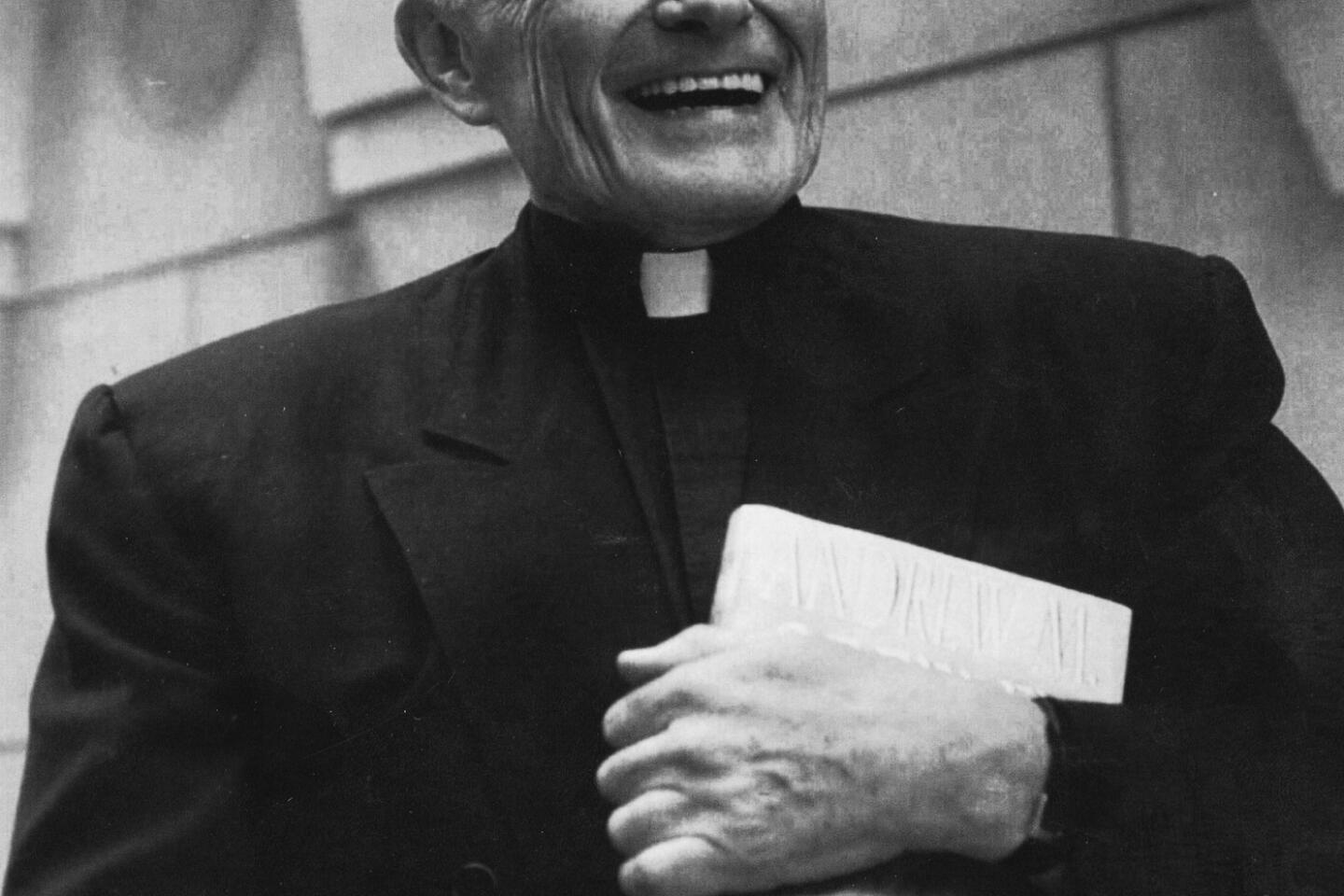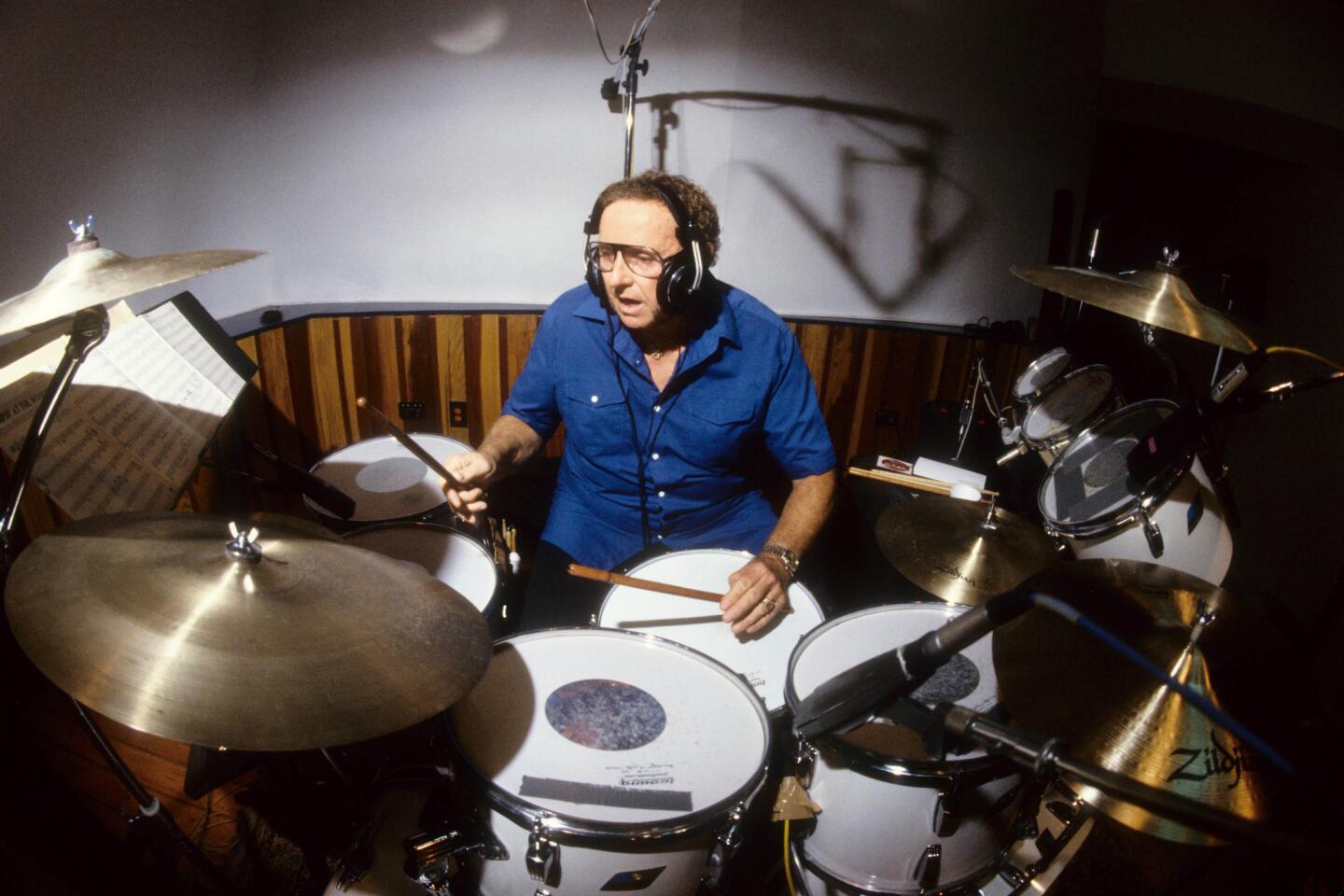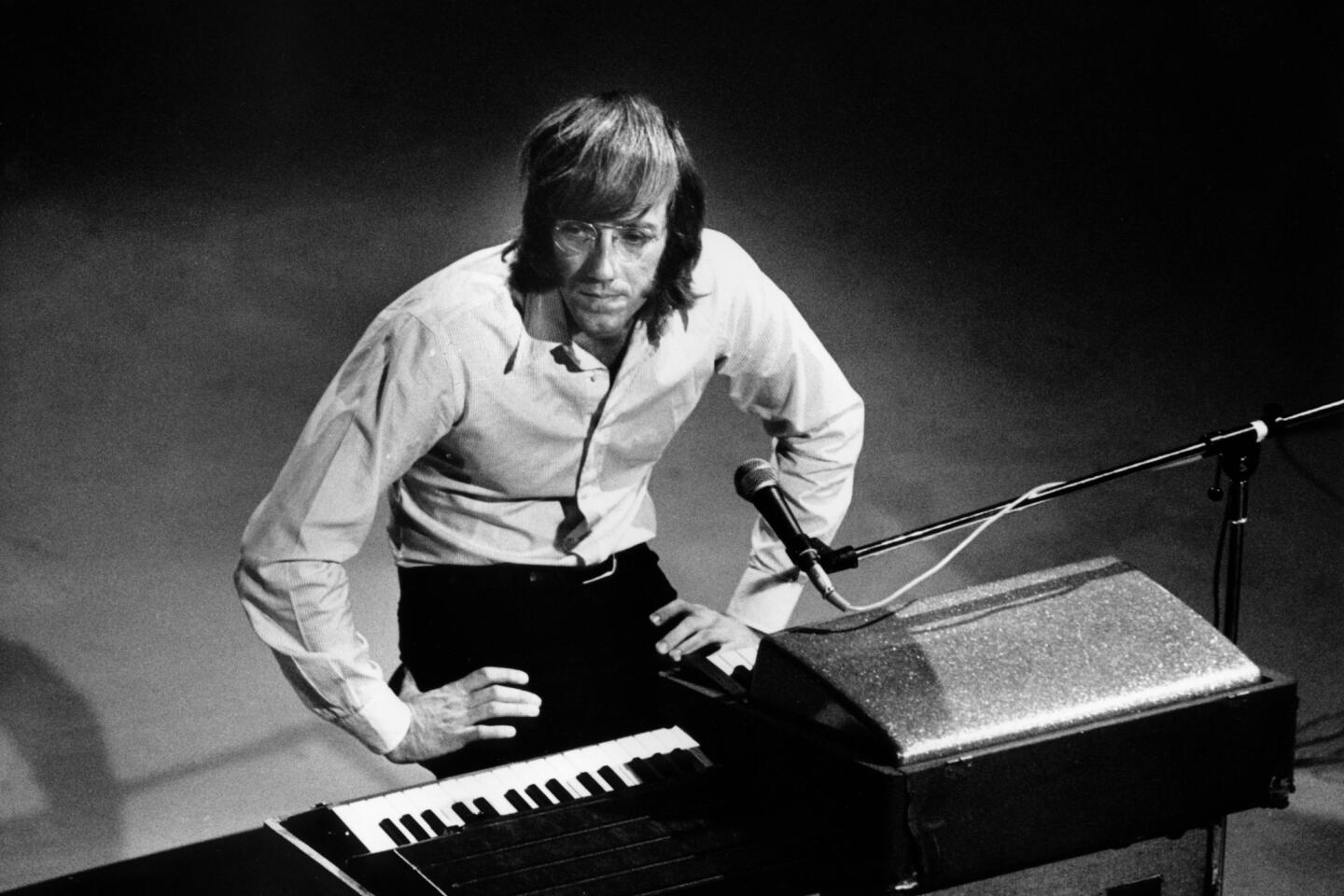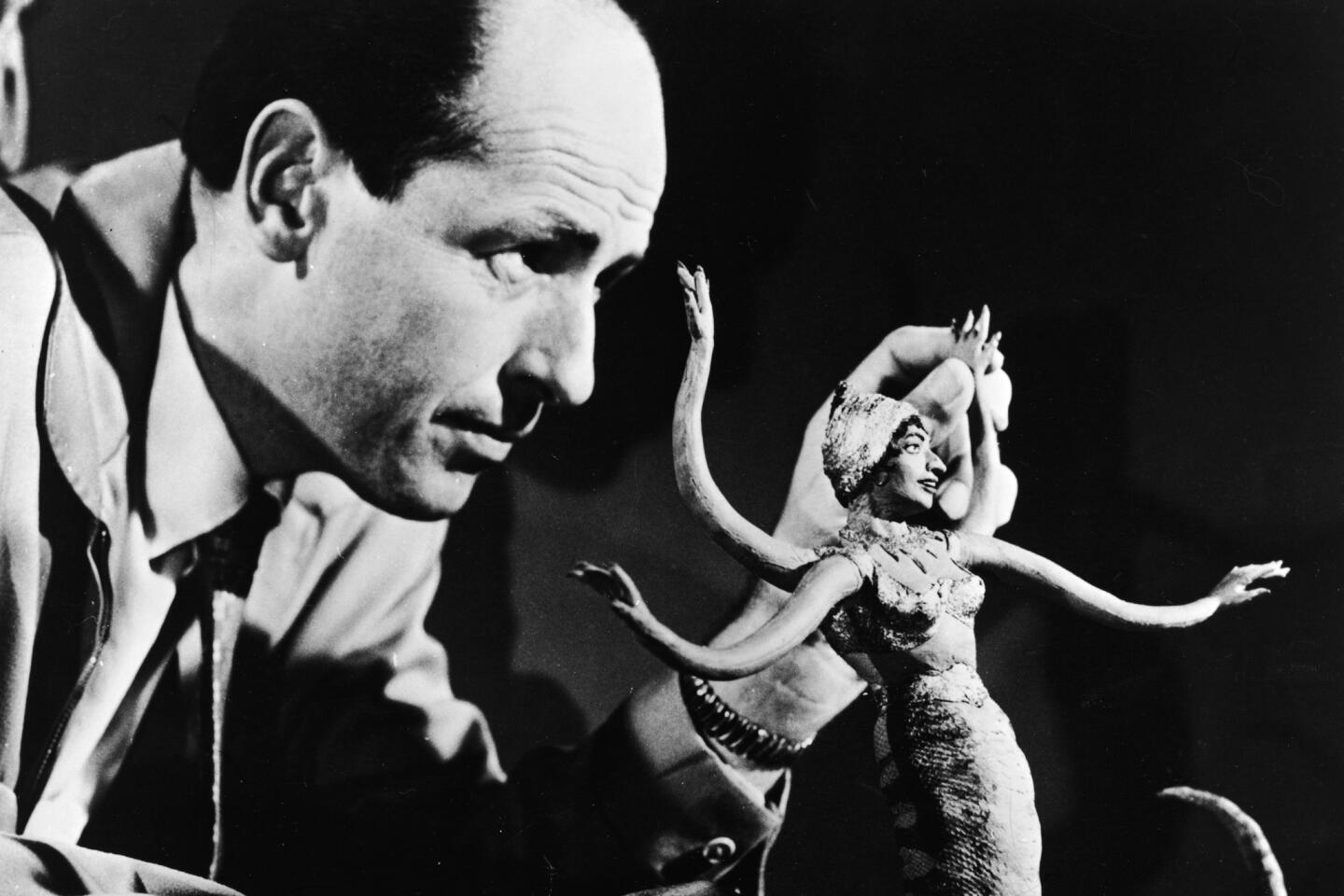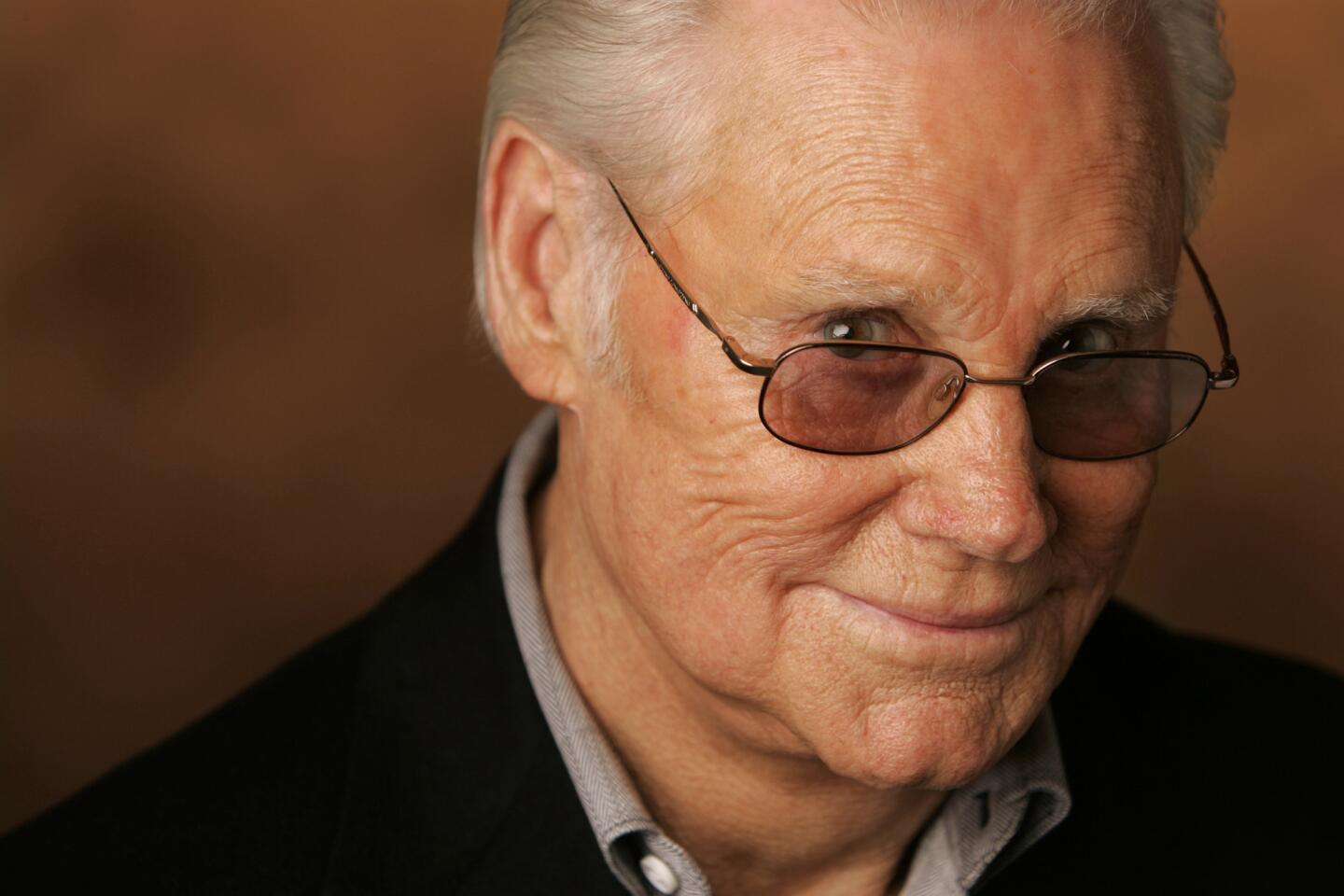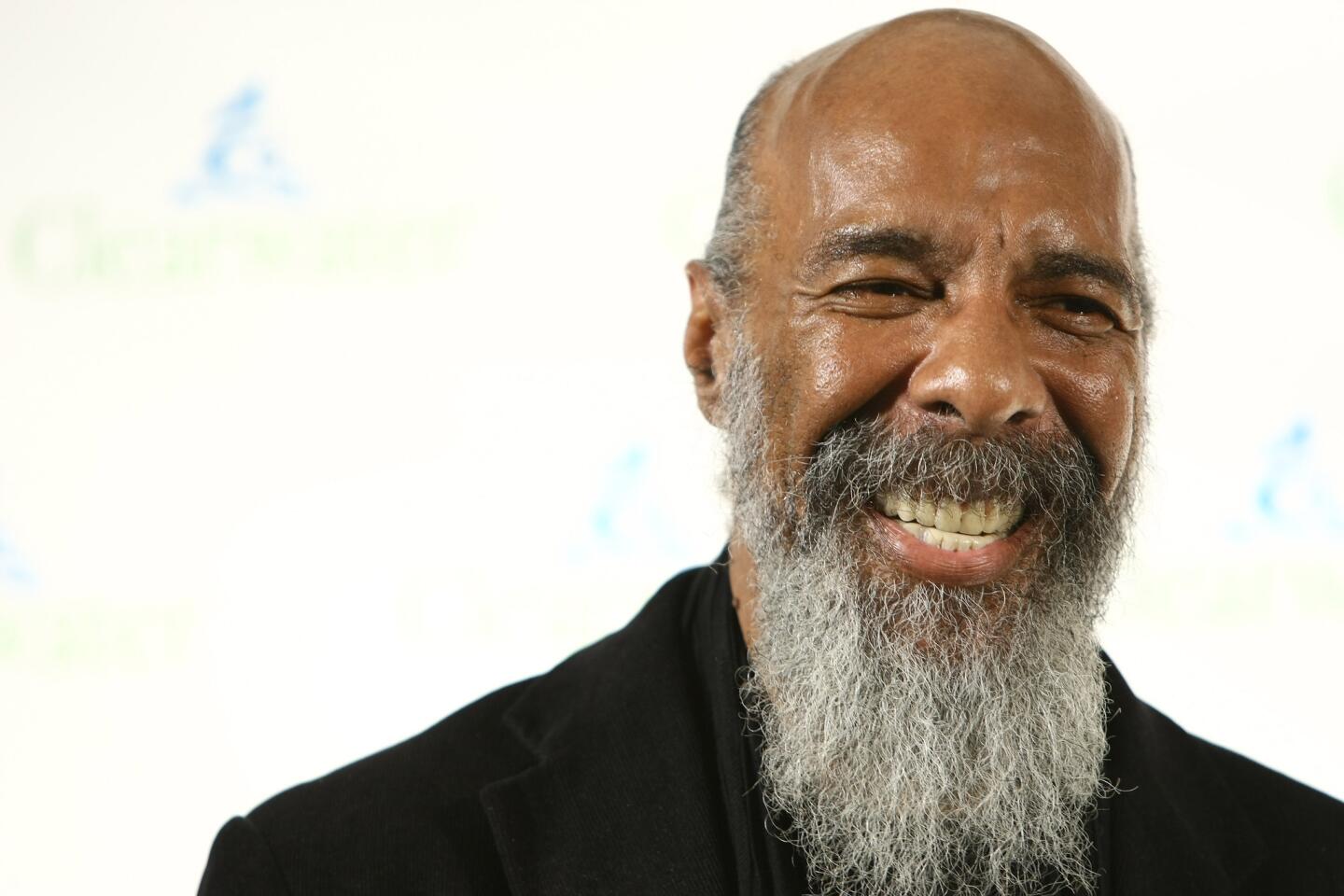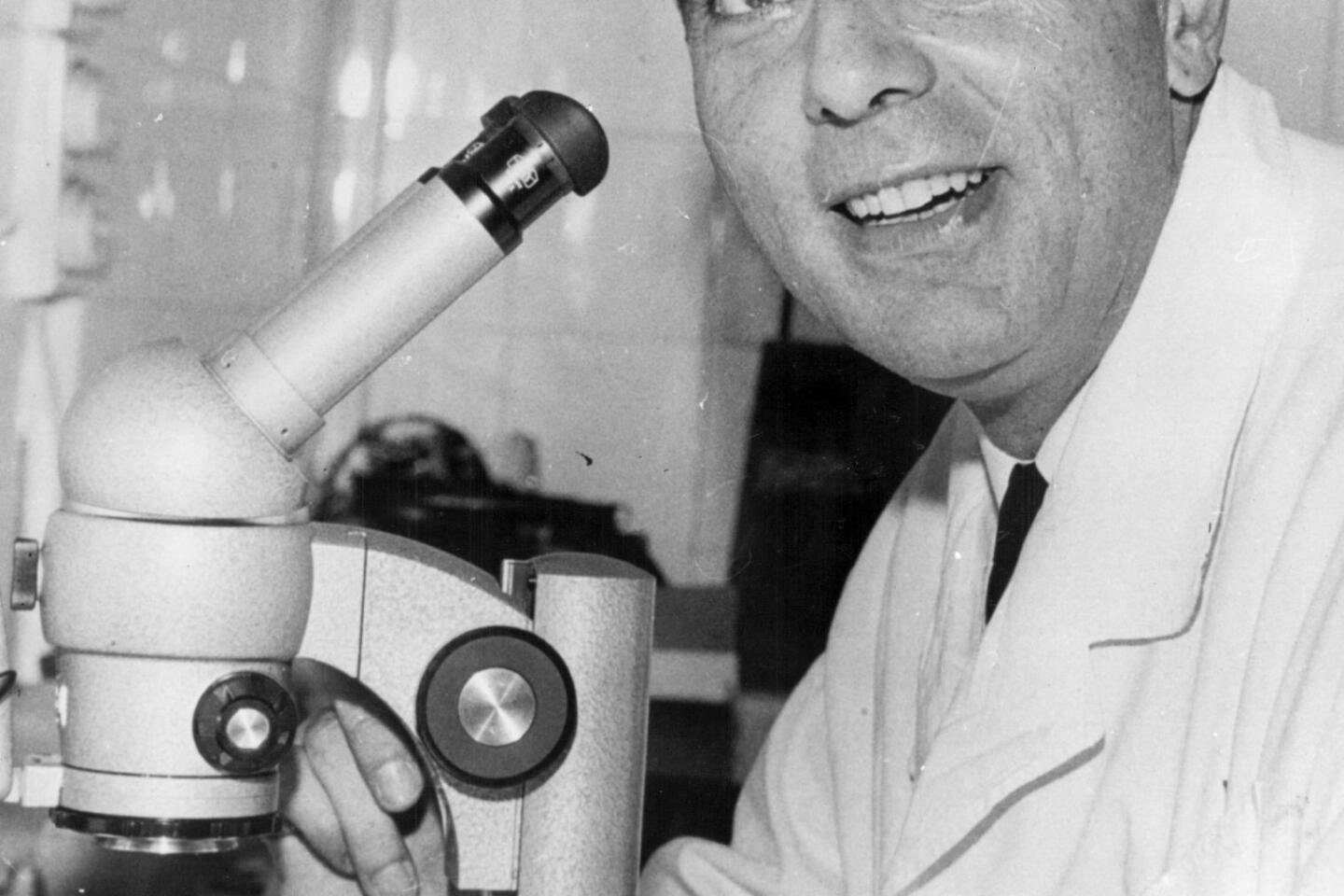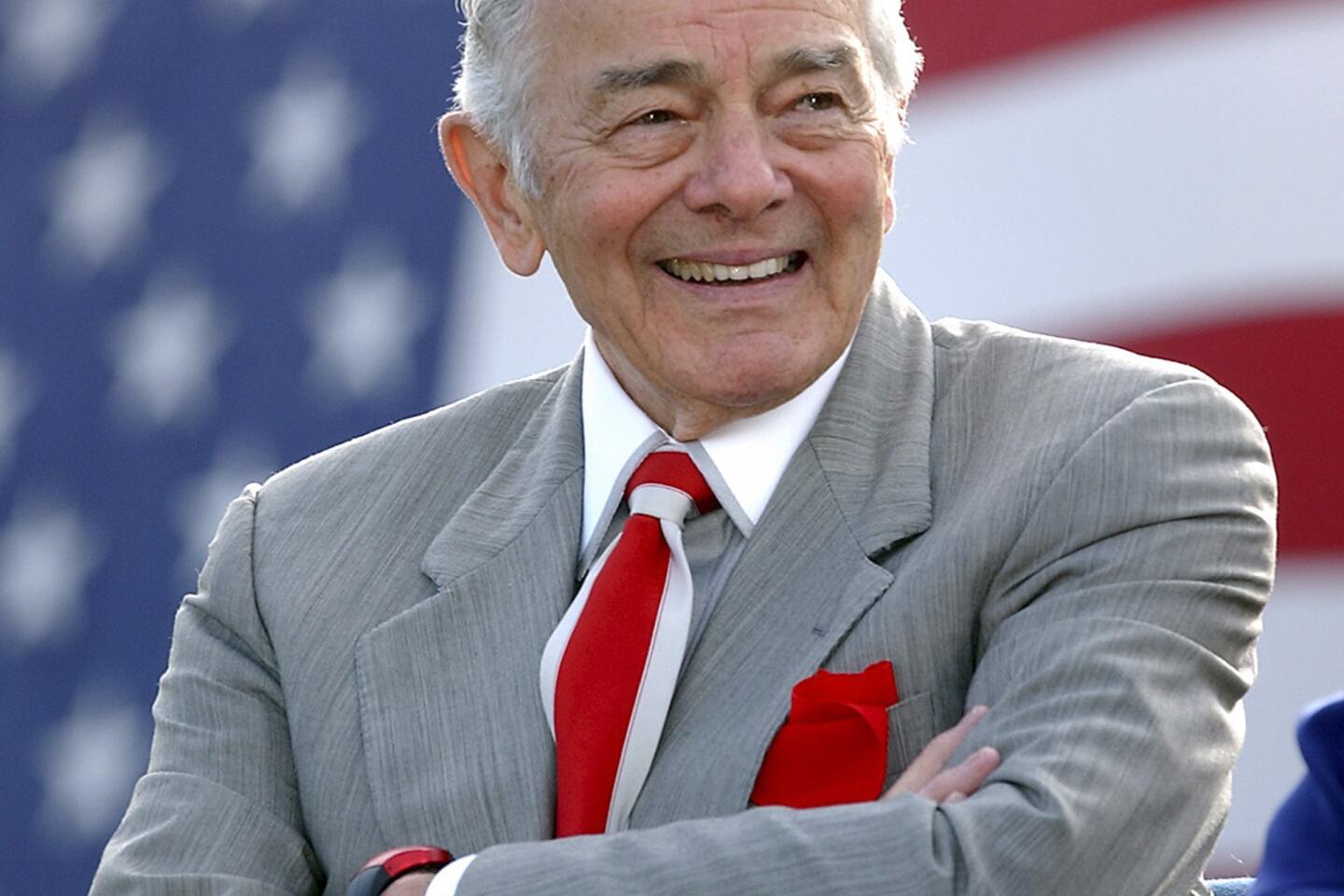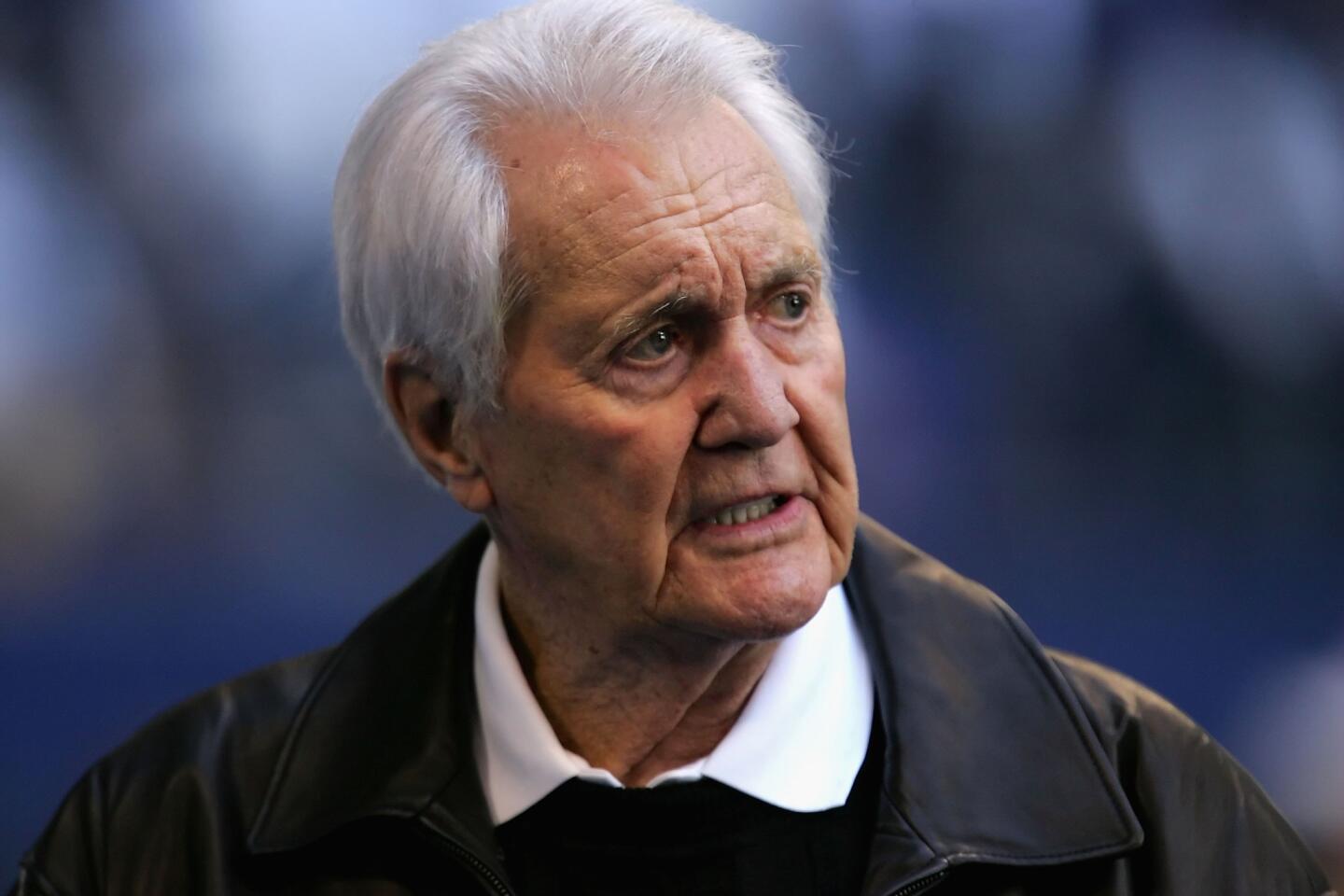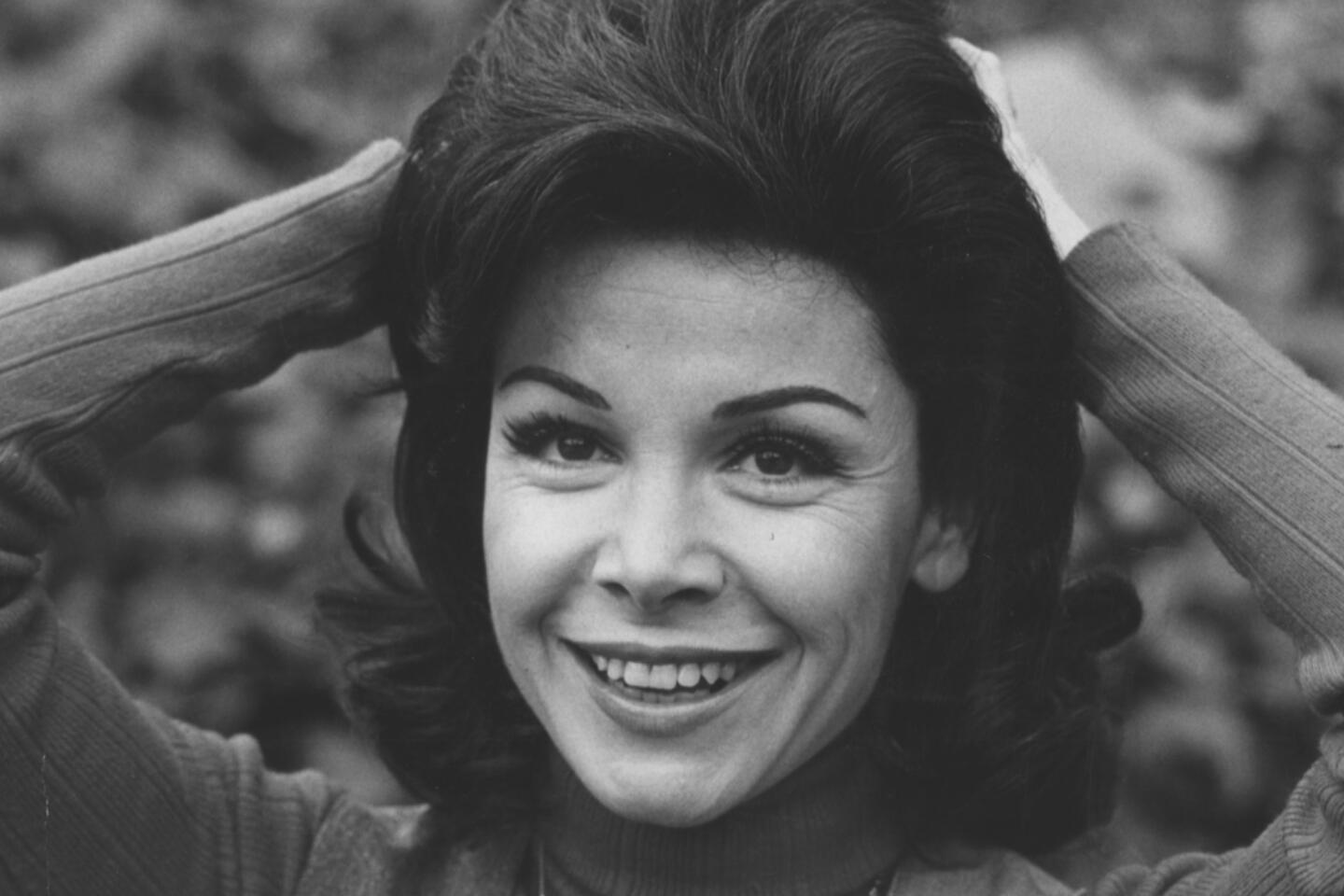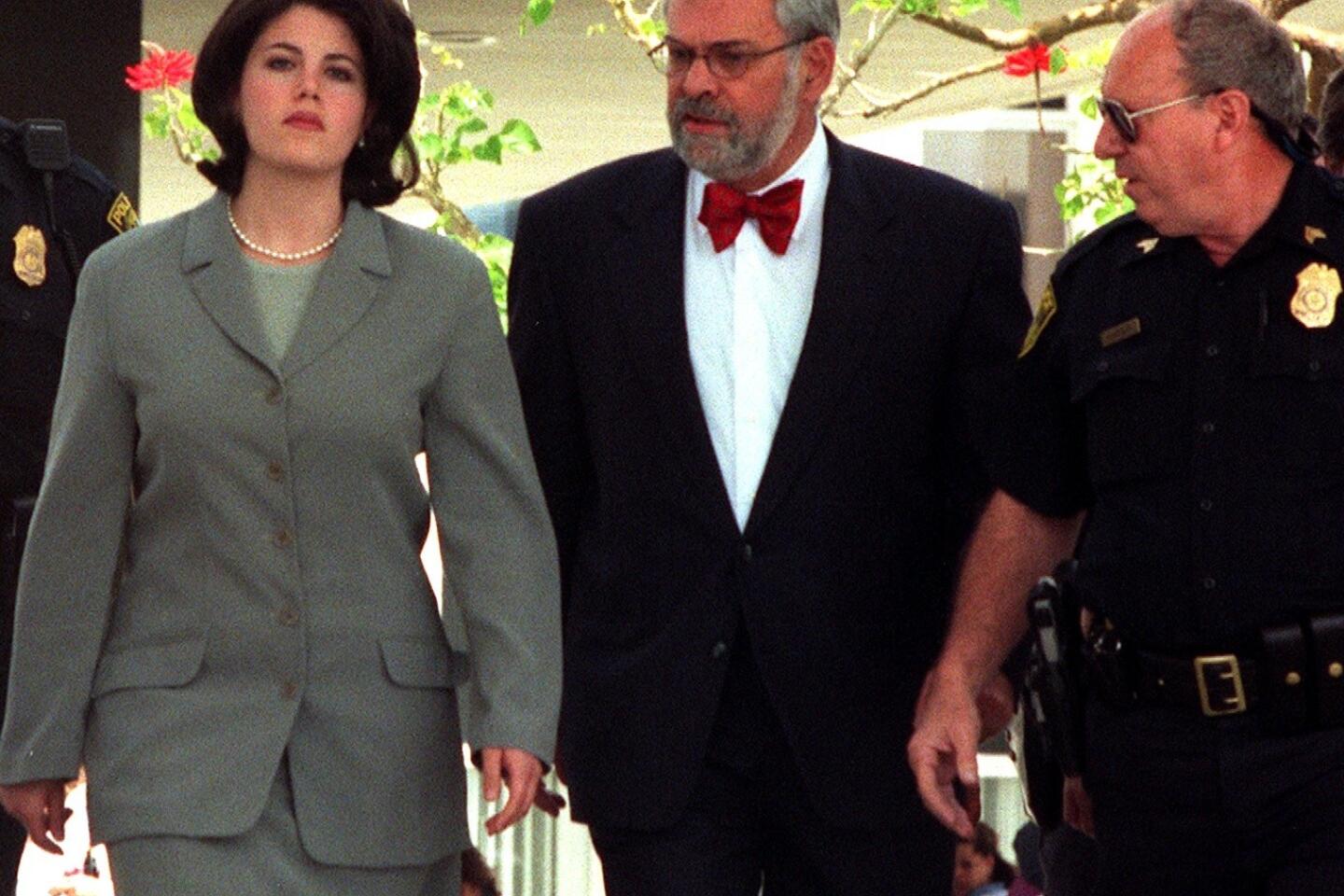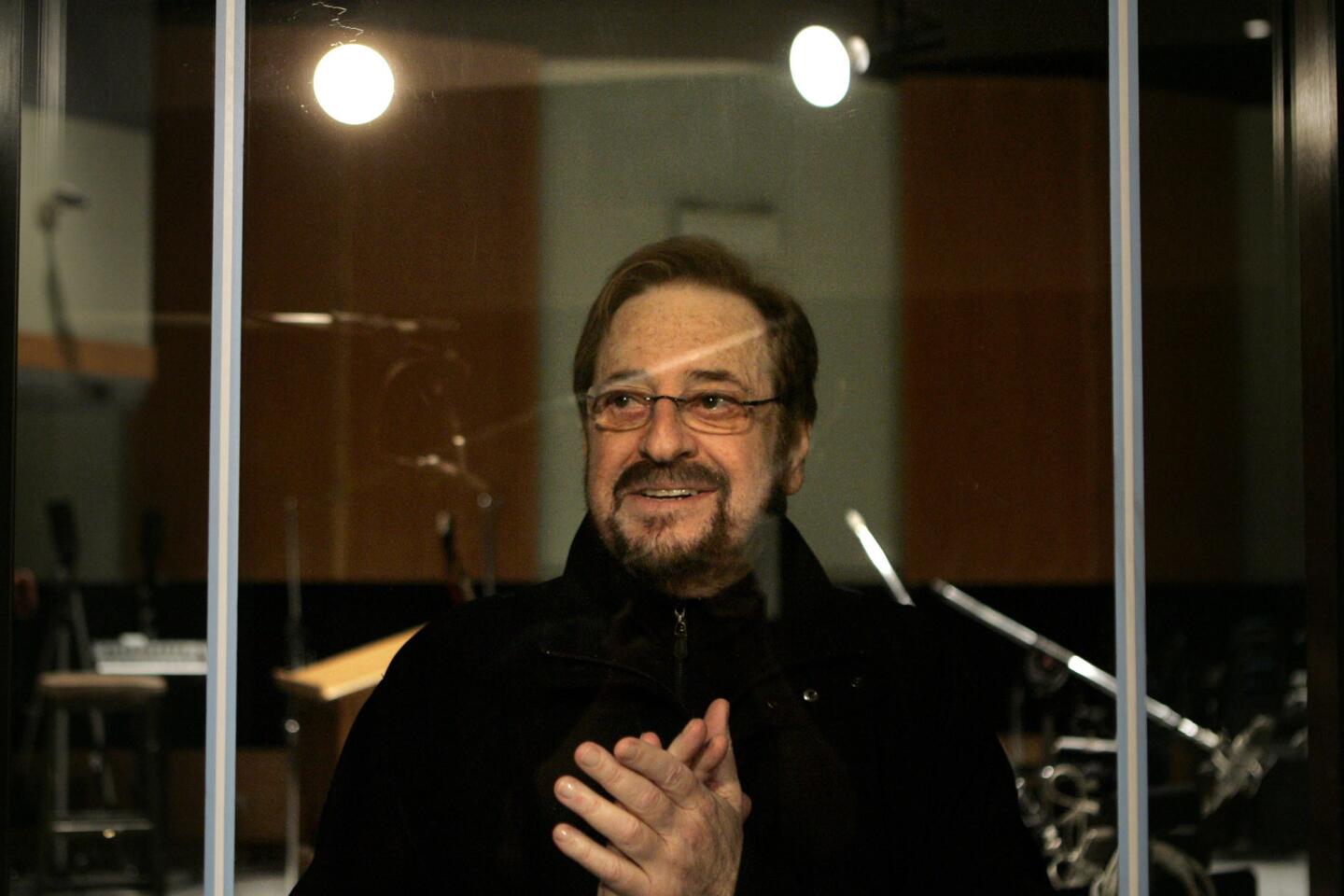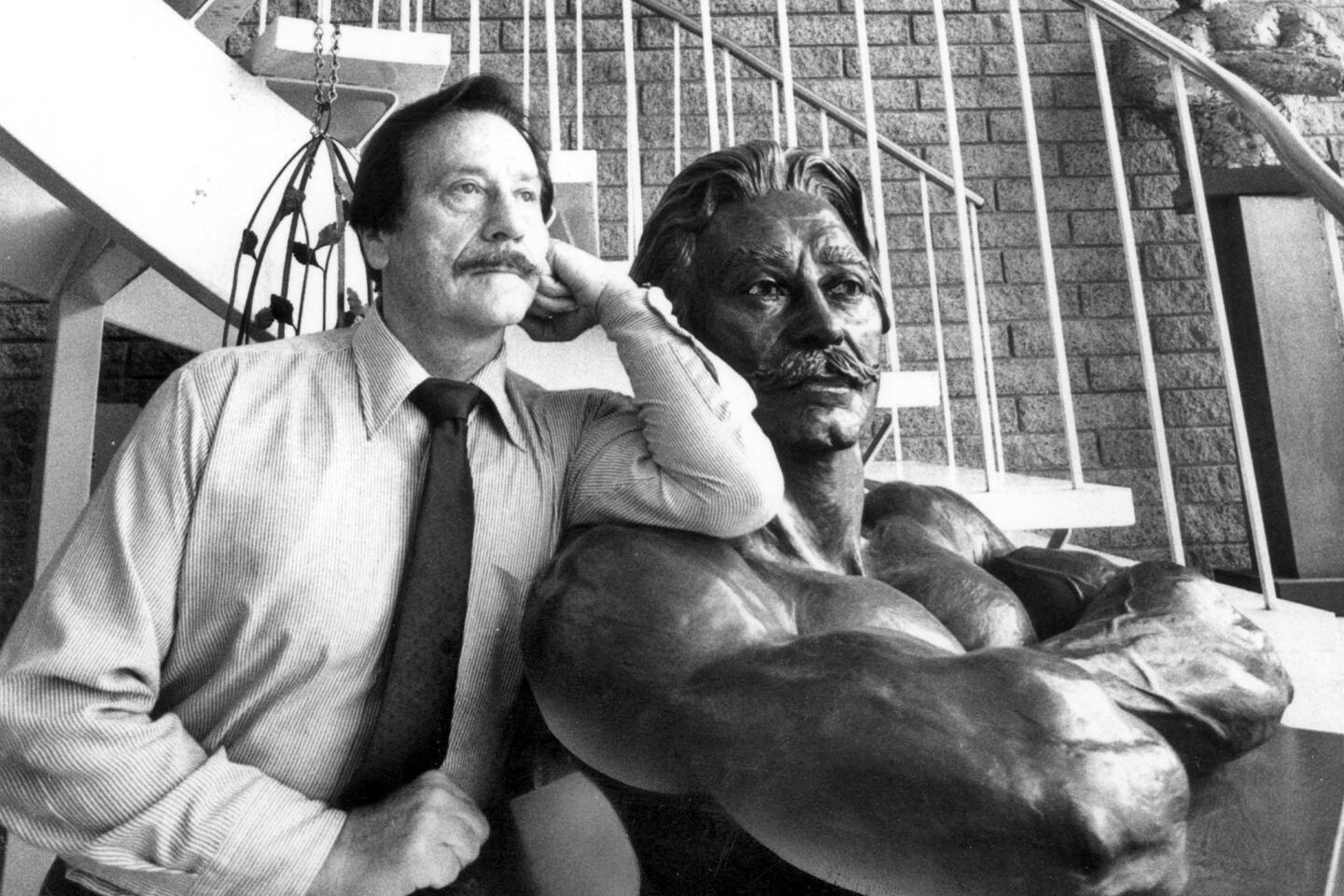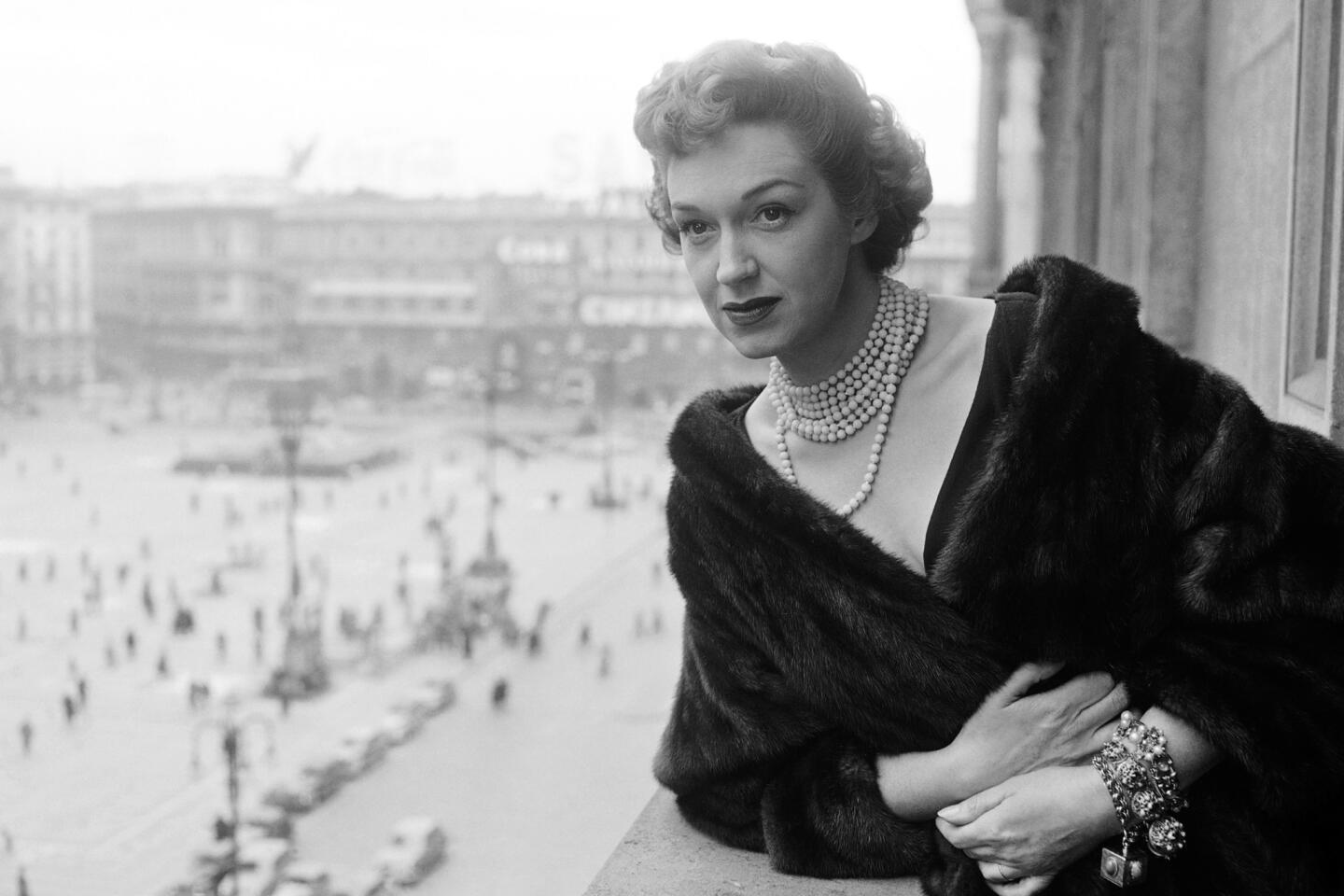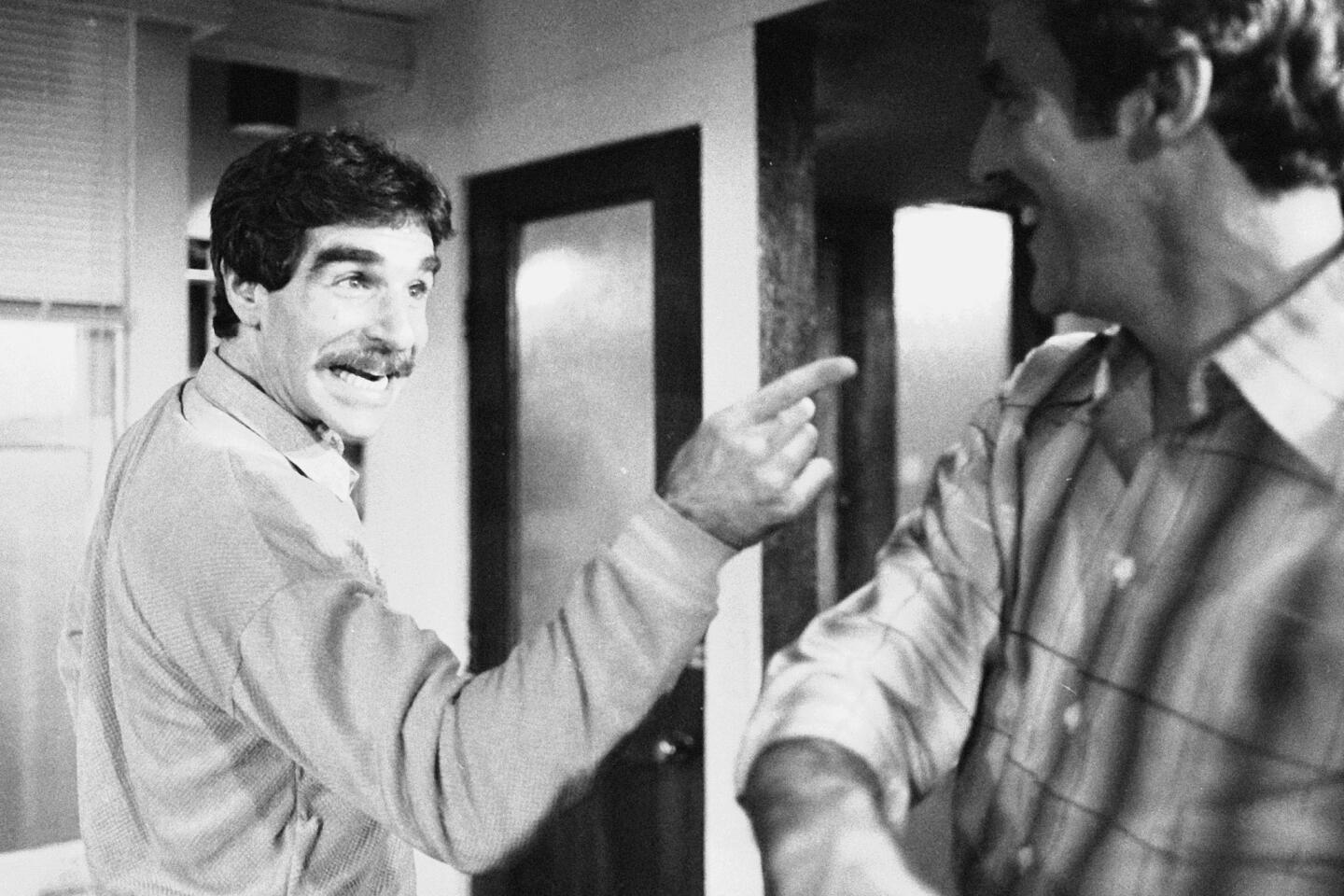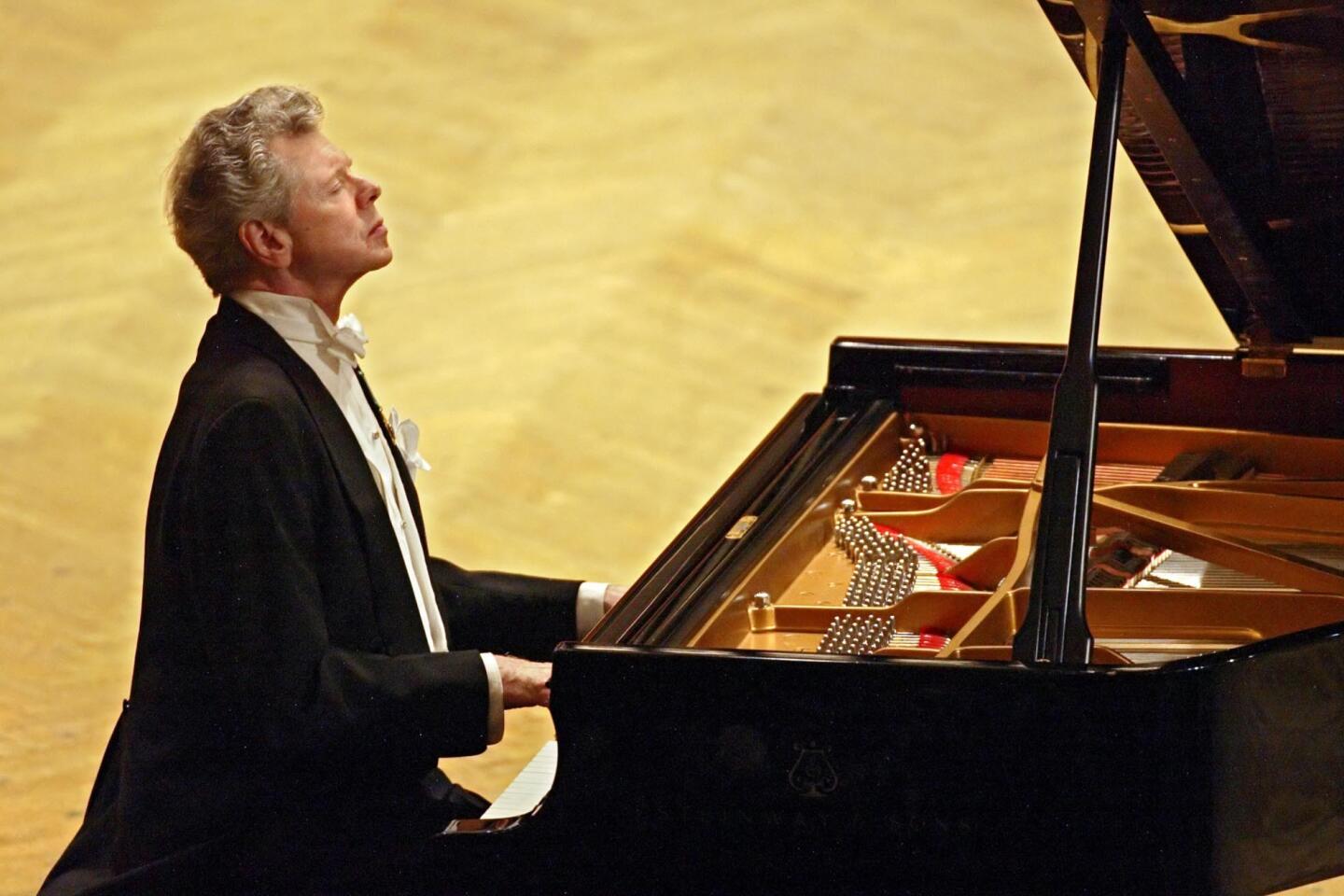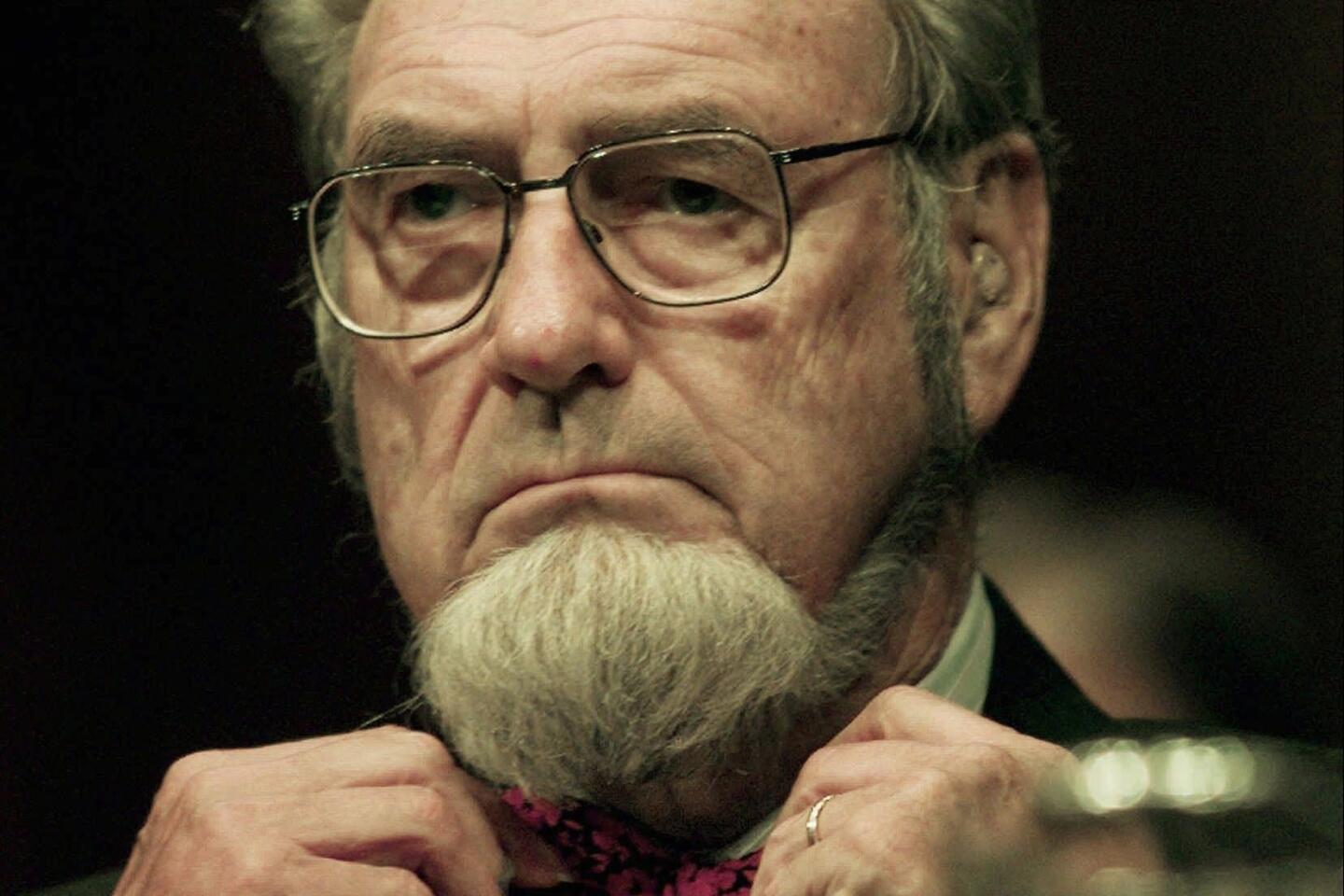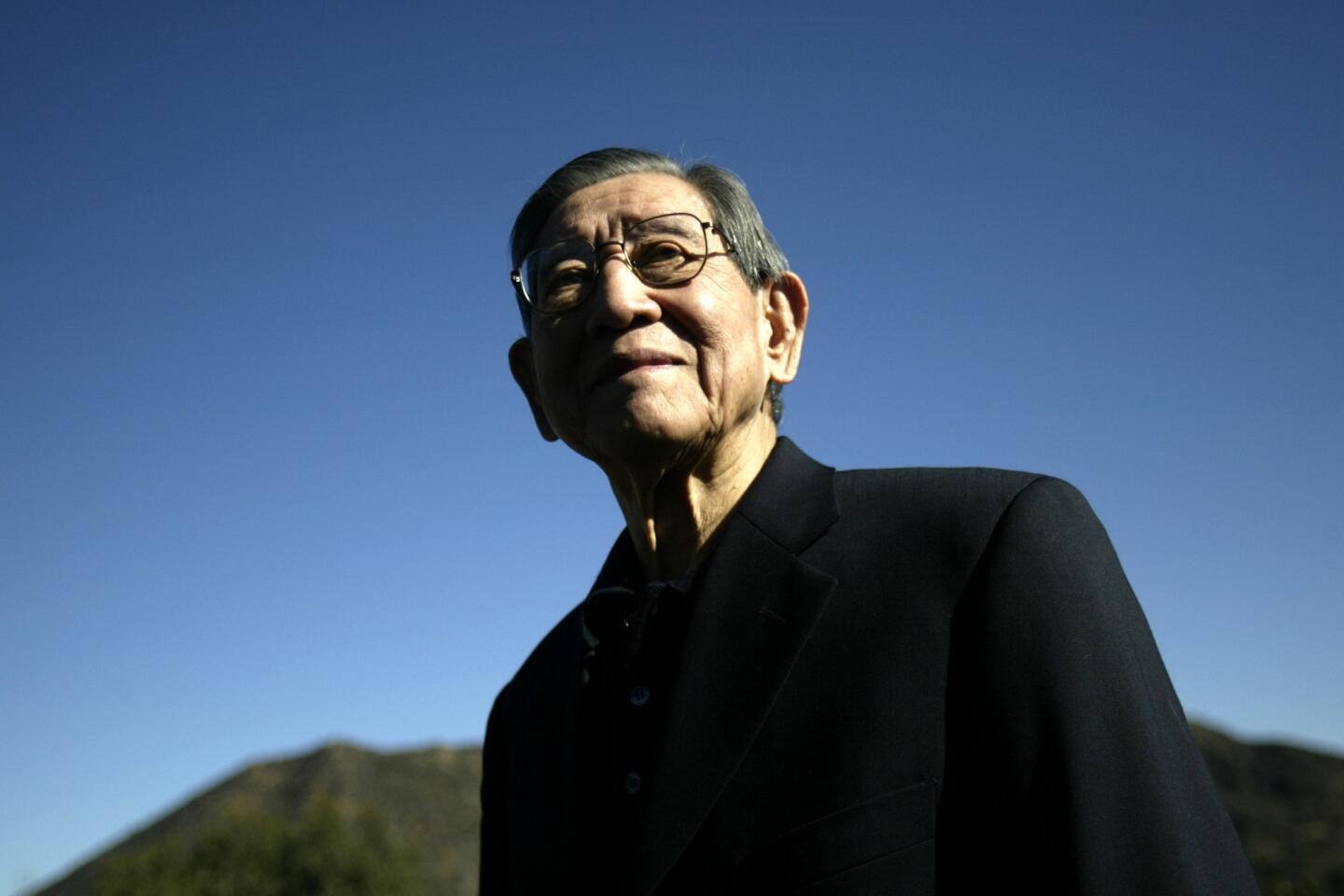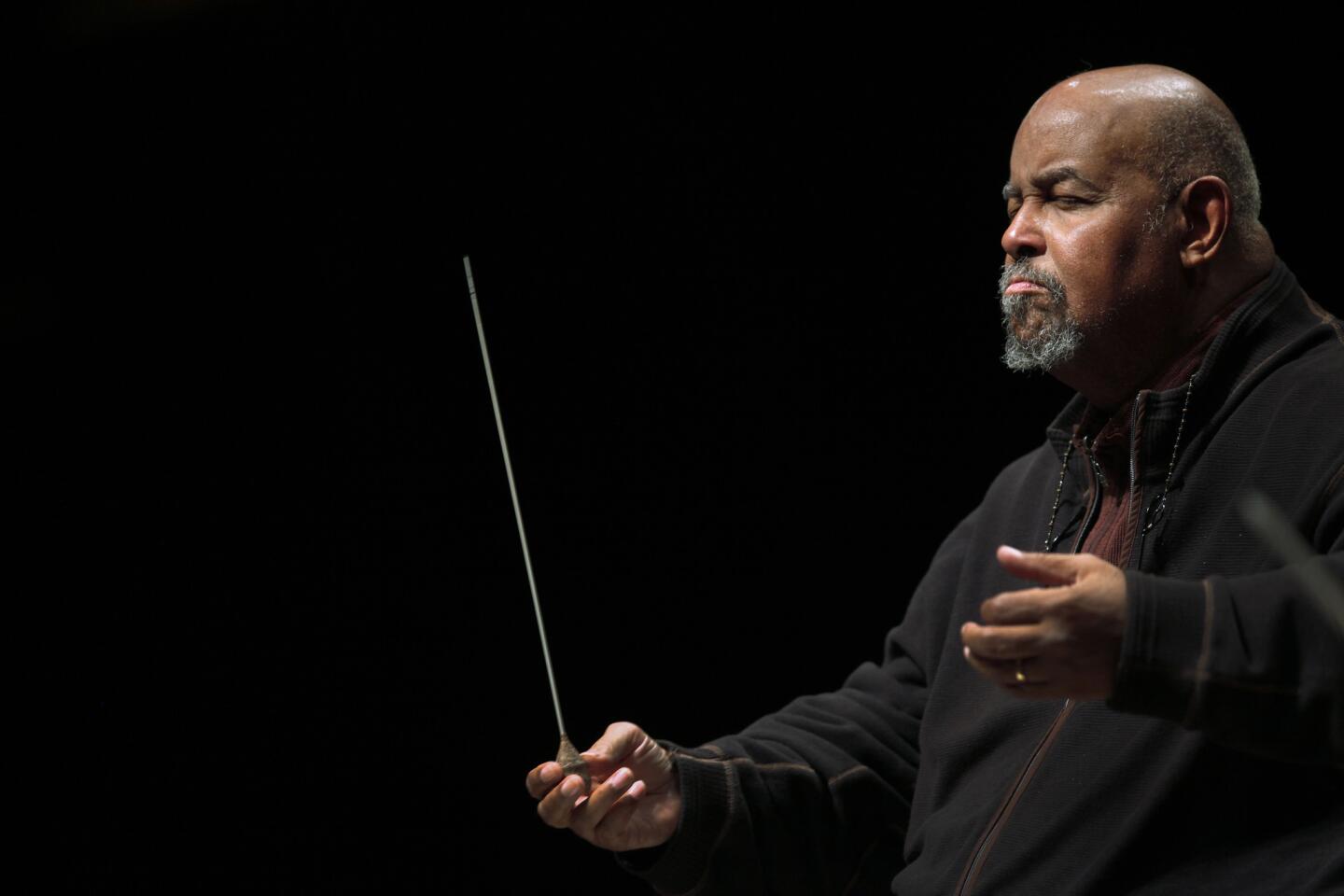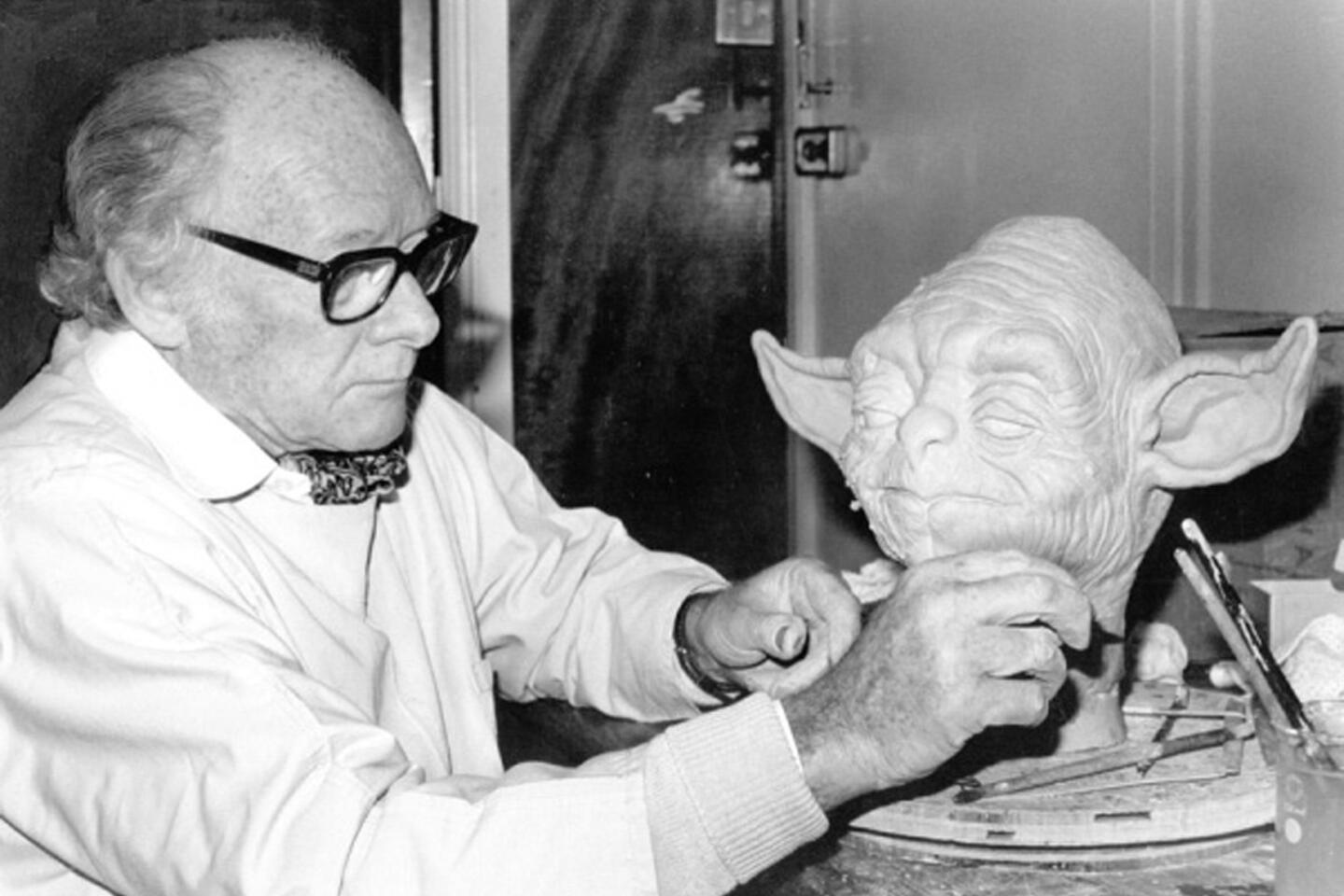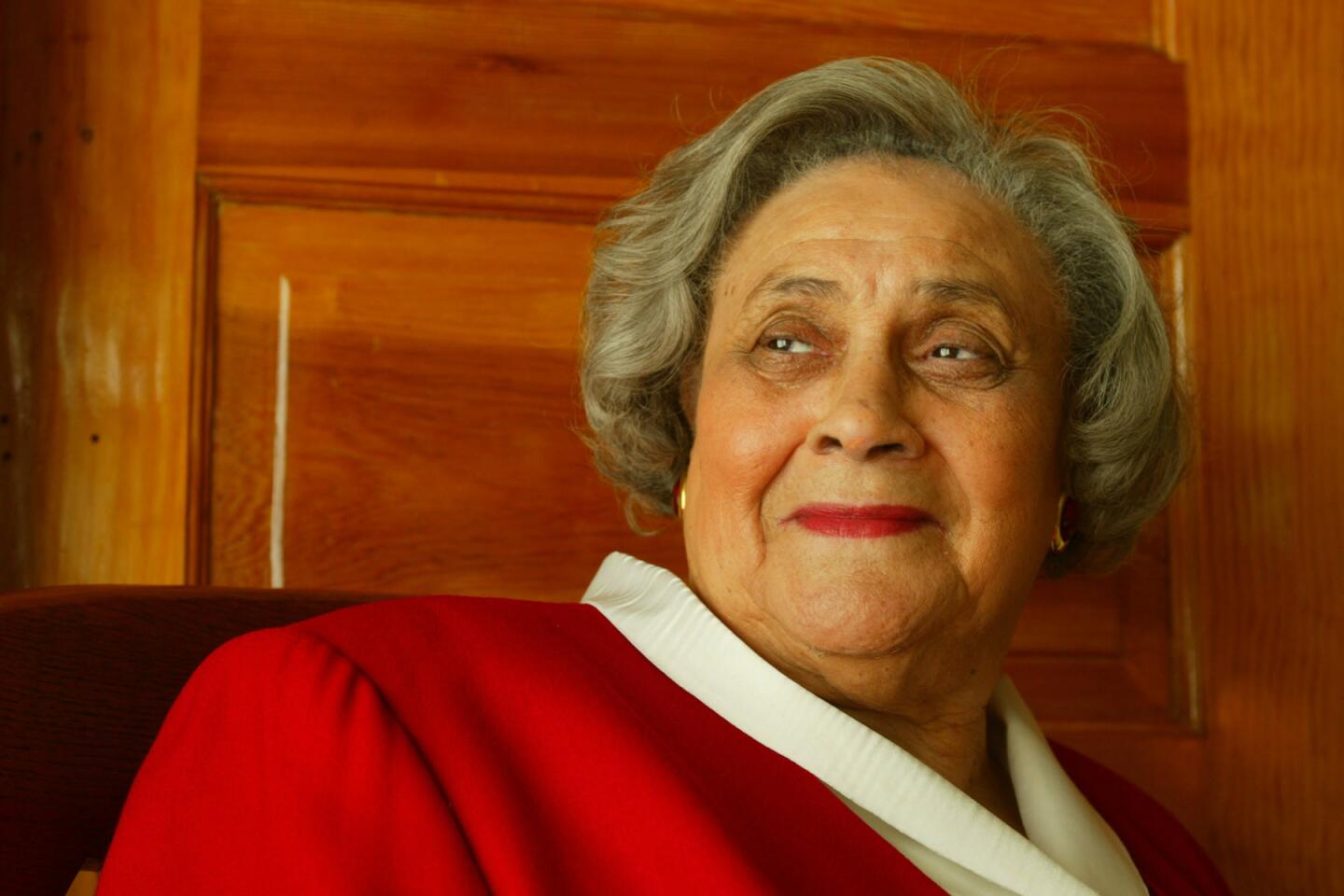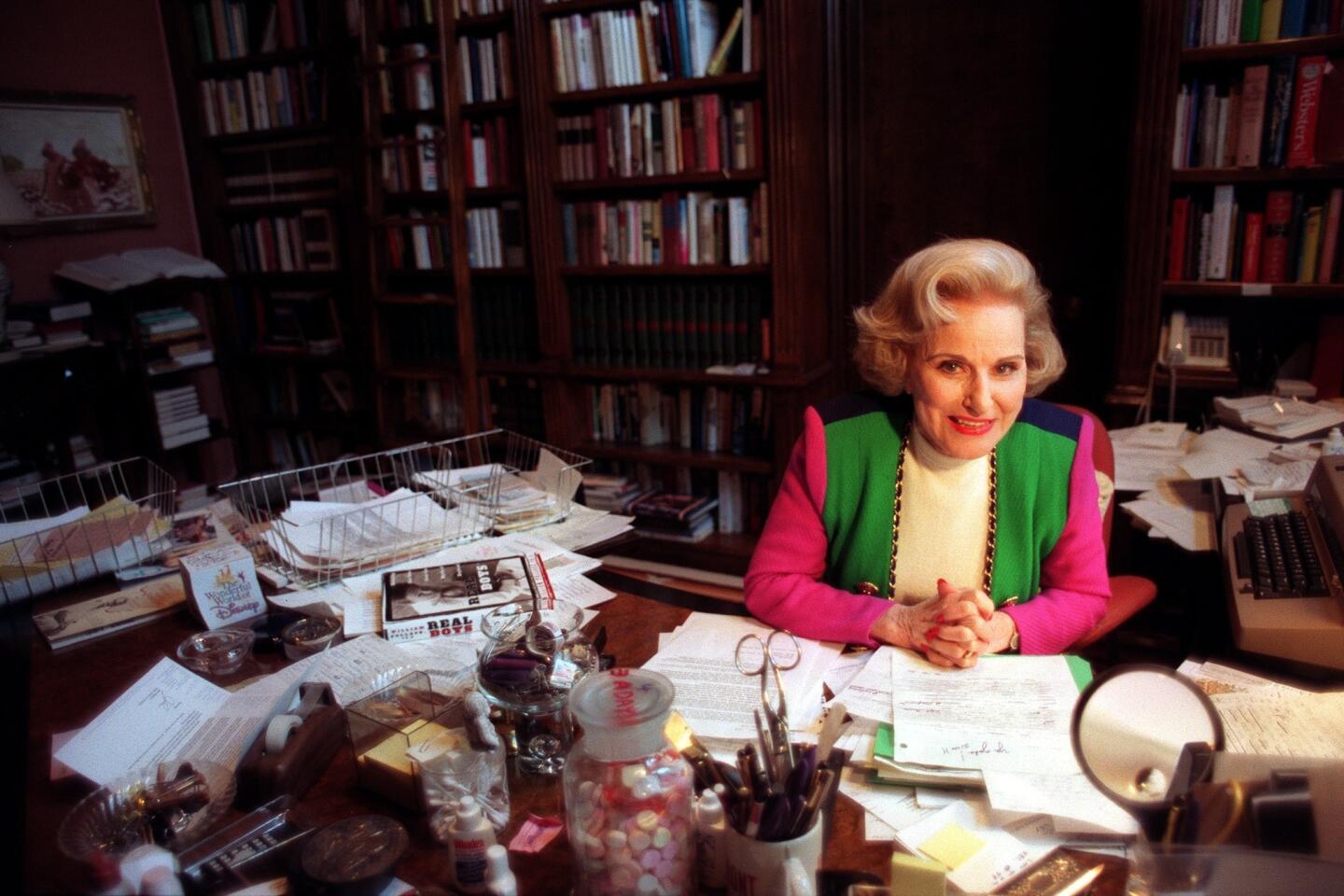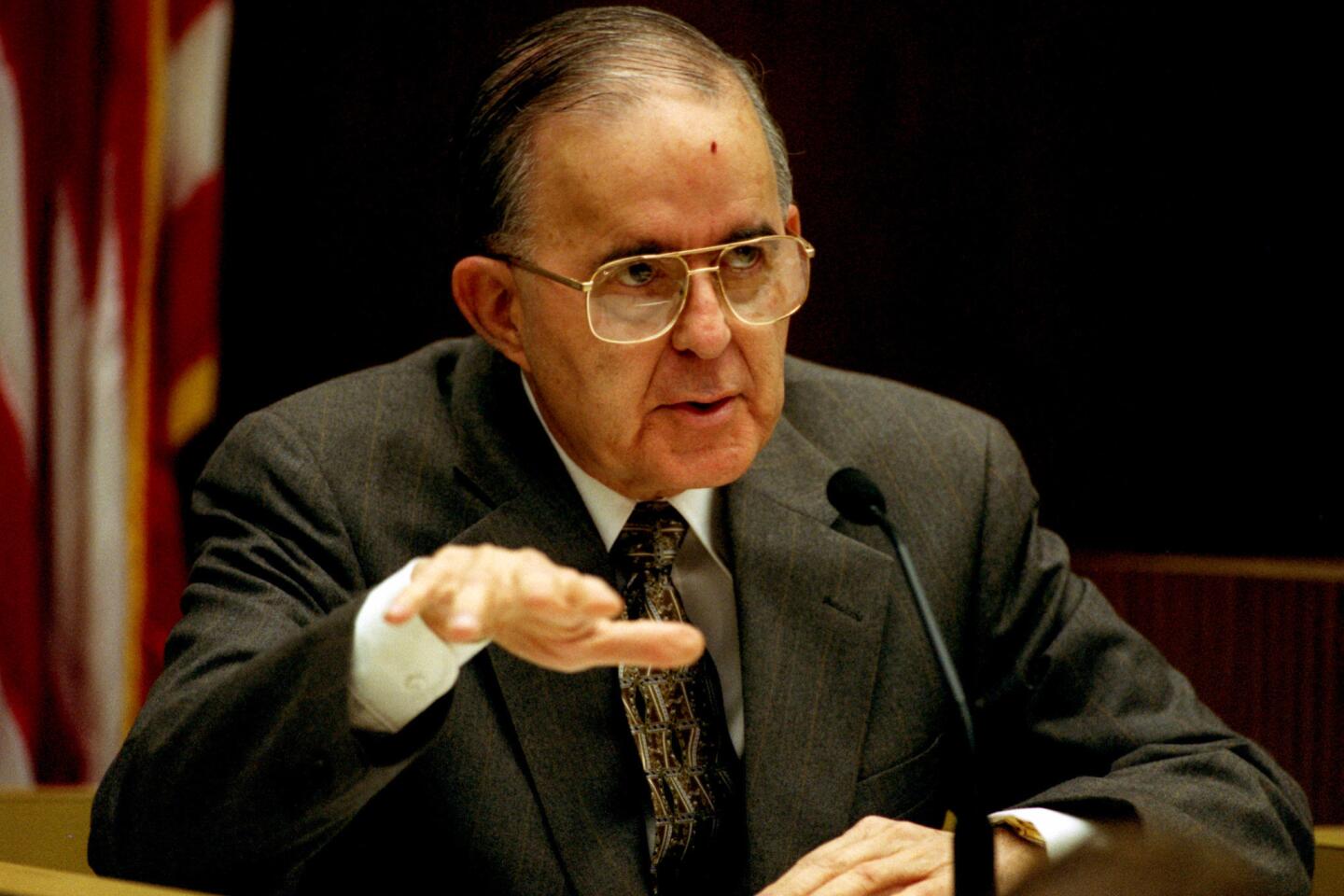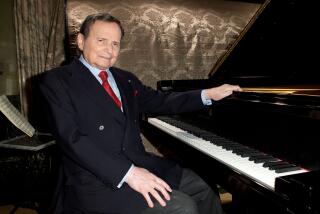Robert Zildjian dies at 89; creator of cymbals maker Sabian
While breaking away from his family’s business dynasty, Robert Zildjian took a closely guarded secret with him — a cymbal-making process with roots in the 17th century — and founded his own noisy empire in 1981.
A legal settlement prevented him from trading on the Zildjian name long synonymous with cymbals, so he called his Canadian-based company Sabian, an acronym based on the names of his children, Sally, Bill and Andy.
As Sabian evolved into a premier cymbal manufacturer, it cut into the market once dominated by Zildjian, the Boston-based company he left behind in a bitter feud with his brother.
Zildjian died March 28 at his home in Brunswick, Maine, his family announced. He was 89.
He was an heir to a family business that began in Constantinople in 1623 when an ancestor stumbled upon a mix of metals and a process that resulted in cymbals with an unrivaled musical tone.
The sultan then in power gave the family the last name of Zildjian – Armenian for “son of a cymbal maker” – and the formula began its quiet march through the generations. It was largely passed from father to oldest son before coming to America in the late 1920s through Robert’s father, Avedis Zildjian III, who saw a tremendous potential market with the advent of jazz.
“American Zildjian cymbals became just as coveted by jazz and rock players of the 20th century as they had been by orchestra percussionists for centuries,” according to a 1981 Times article that pointed out that the family’s cymbals had been world-famous since at least 1779.
When Avedis died in 1979, he broke with tradition and left the Massachusetts company to both sons. But his oldest, Armand, was given the controlling interest. It was “a terrible blow,” Robert later said, because “I was running 80% of the business.”
It set the stage for a divisive legal battle that ended with a Solomon-like split. His brother retained control of the Zildjian business and Robert took over the company’s Canadian factory, which had produced a lower-end line of cymbals. In his late 50s, he launched Sabian.
“Having been dealt a major setback at an age where most men would have opted for retirement, RZ,” as Robert Zildjian was nicknamed, “instead chose to re-invent the cymbal business with his own hand-crafted brand,” Sabian said in a statement.
In the Sabian plant in tiny Meductic, Canada, ingots of copper and tin are melted into a bronze alloy, which is baked and shaped into cymbals by artisans.
Their hand-hammering produces a rich sound that caught the attention of drummers when Sabian’s first cymbals reached U.S. stores in the early 1980s, Zildjian’s son Andy told Music Trades magazine in 2006, the year he became president of the company.
A quarter-century after it was founded, Sabian was a “dramatic success” story with annual sales of more than 1 million cymbals in about 120 countries, according to Music Trades.
The Sabian logo has adorned the cymbals of such drummers as Phil Collins, Chad Smith of the Red Hot Chili Peppers, Matt Sorum of Guns N’ Roses and Chris Wilson of Good Charlotte.
On Twitter, Smith called Zildjian an “innovator and Cymbal visionary,” and Sorum wrote, “you made us drummers the best noise makers around.”
Born July 14, 1923, in Boston, Zildjian became an apprentice at his father’s factory when he was 14.
During World War II, he served as an Army infantryman in Europe and upon his return earned a degree from Dartmouth College.
Returning to the Zildjian company, he concentrated on building sales in Europe and often traveled with his wife, Willi, whom he married in 1951. The couple journeyed to Istanbul in 1960 to finalize the purchase of a competitor, the original K. Zildjian Co.
“He was blunt, relished being politically incorrect, and, until he fell ill, loved the challenge of running the business,” Music Trades editor Brian T. Majeski wrote in a tribute.
Even after his brother died in 2003, Zildjian referred to the business he left behind as “the competitor.” Yet both sides of the rift agreed that the fierce sibling rivalry had a creative upside — it pushed the development of cymbals to new heights.
Zildjian is survived by his wife, Willi; three children, Bill, Sally and Andy; and eight grandchildren.
More to Read
Start your day right
Sign up for Essential California for the L.A. Times biggest news, features and recommendations in your inbox six days a week.
You may occasionally receive promotional content from the Los Angeles Times.
